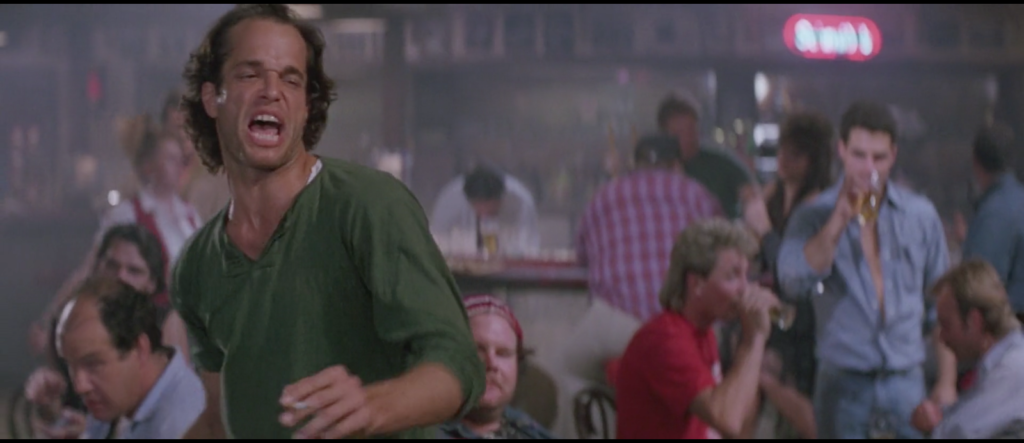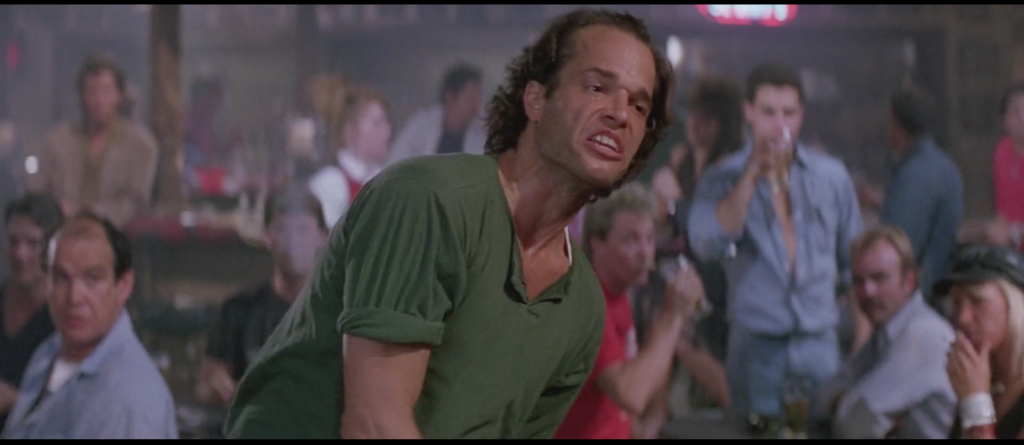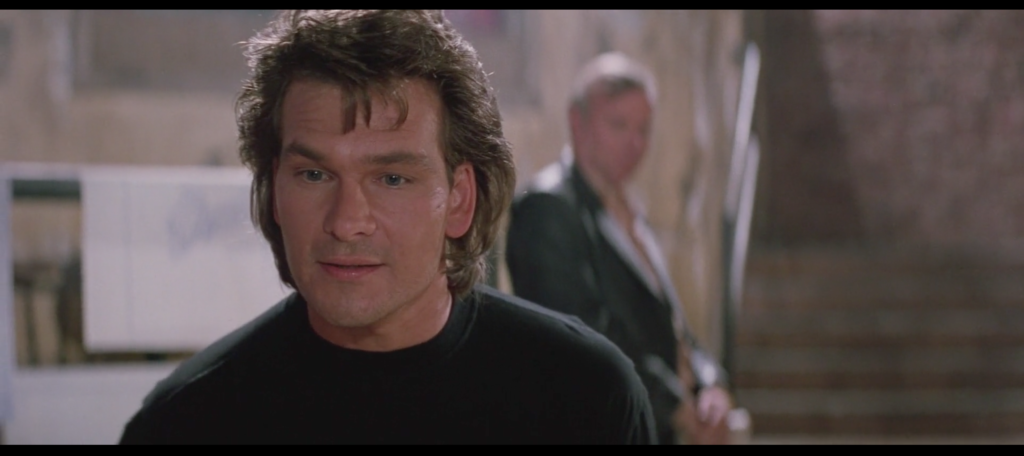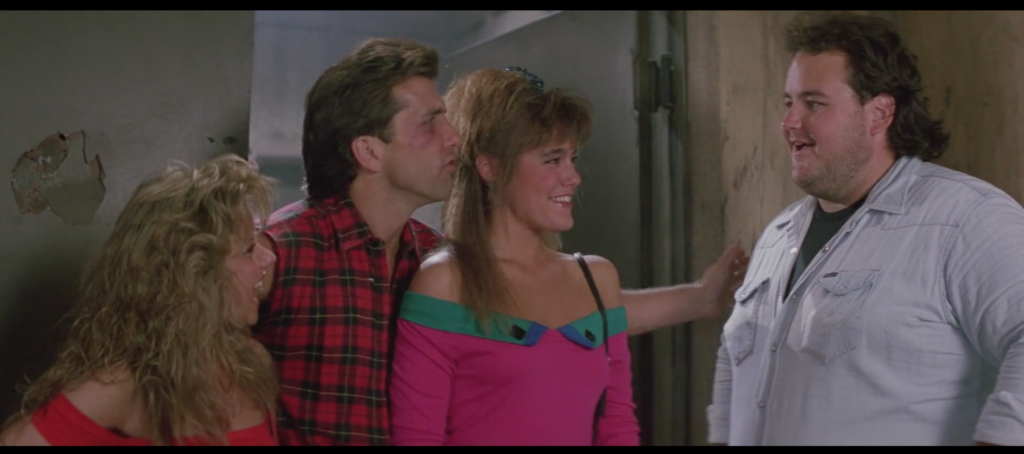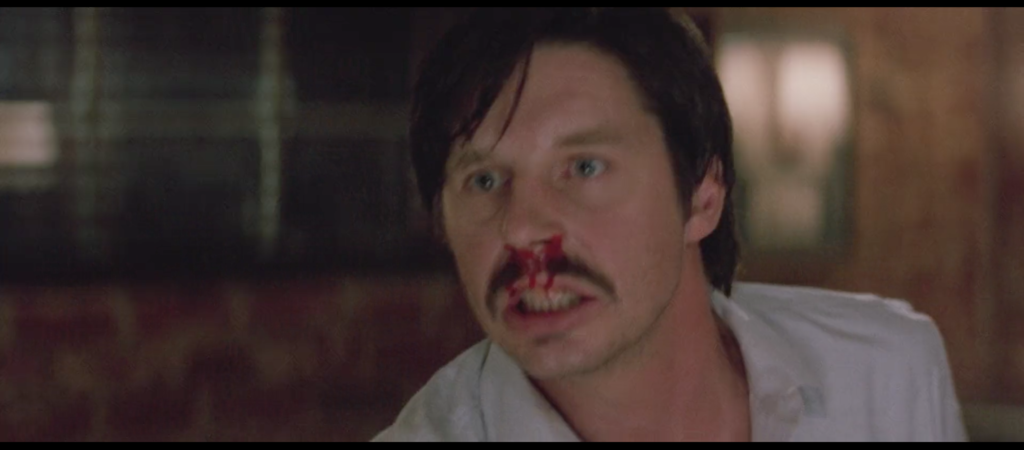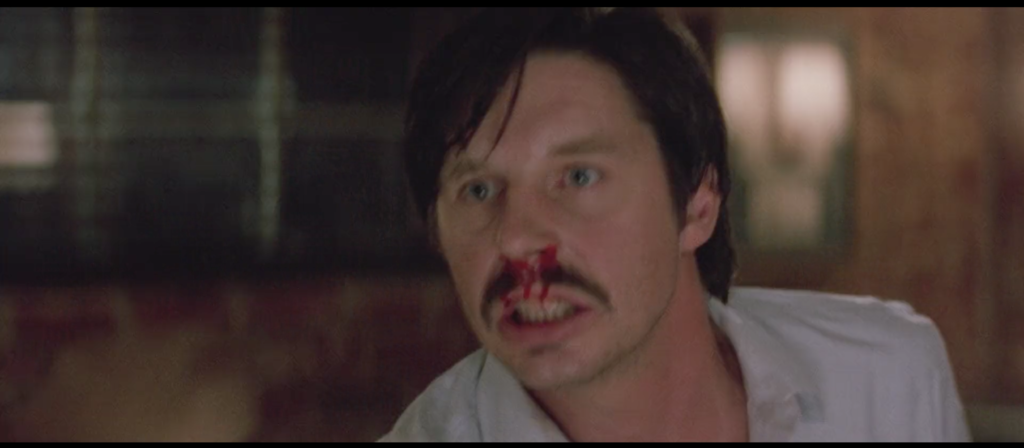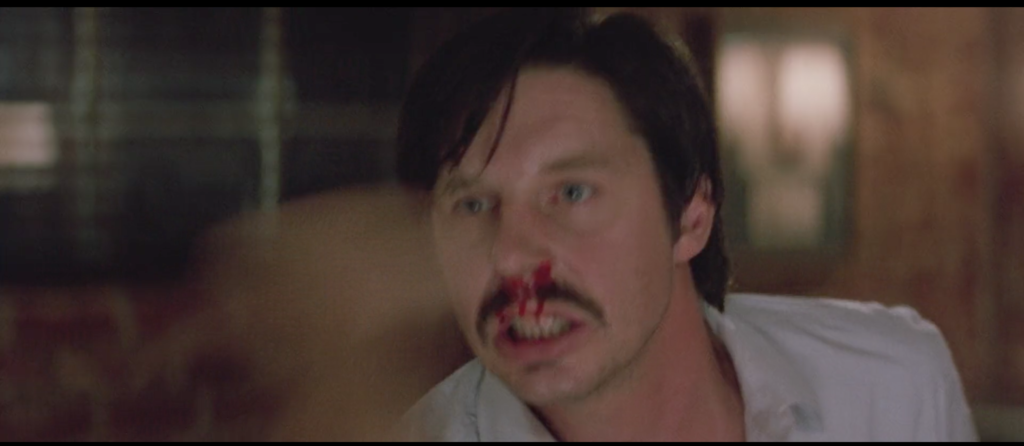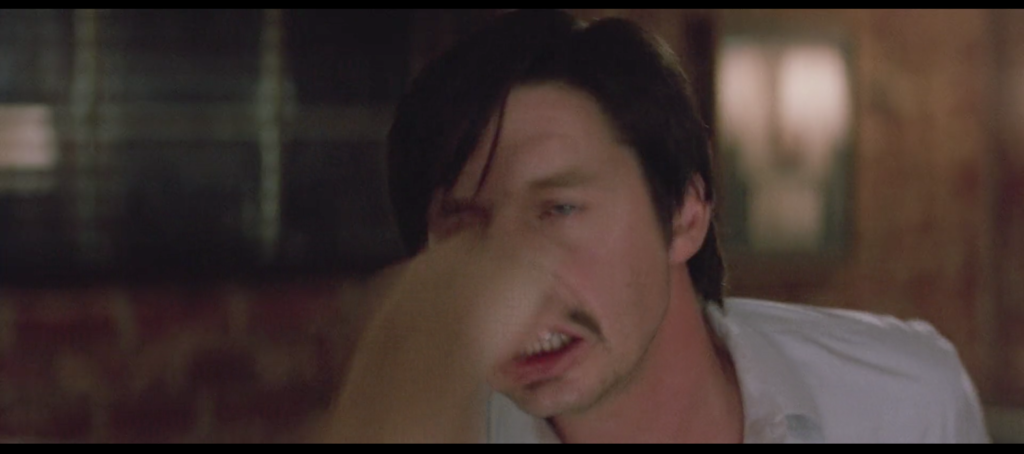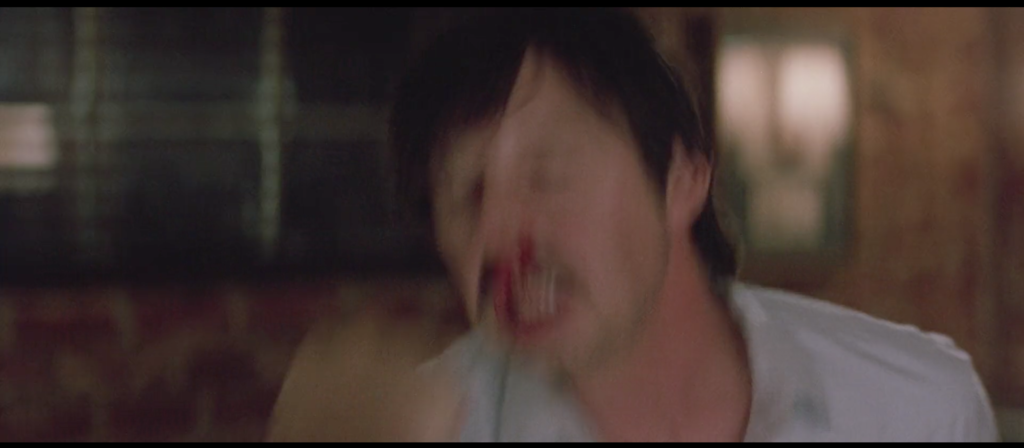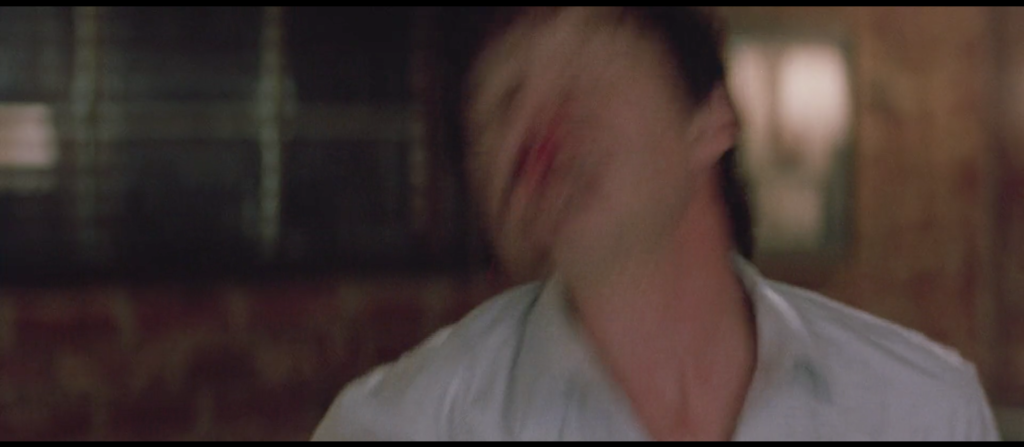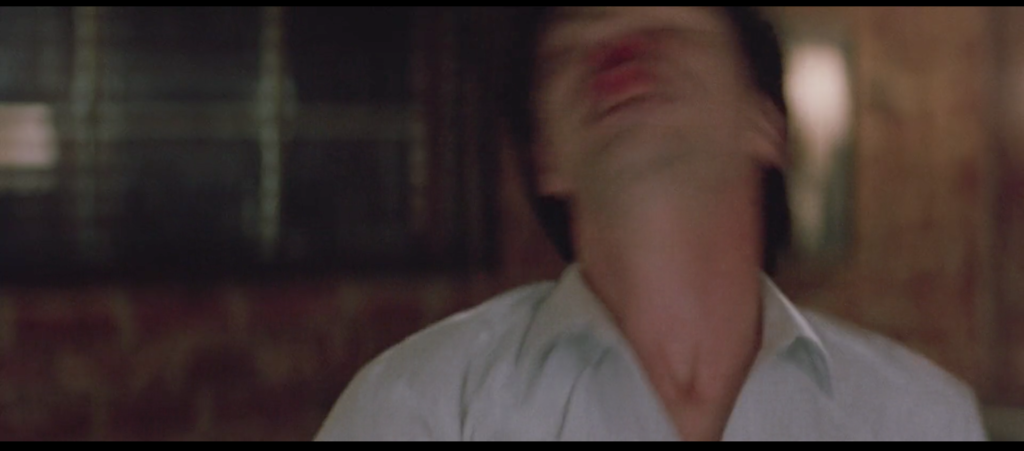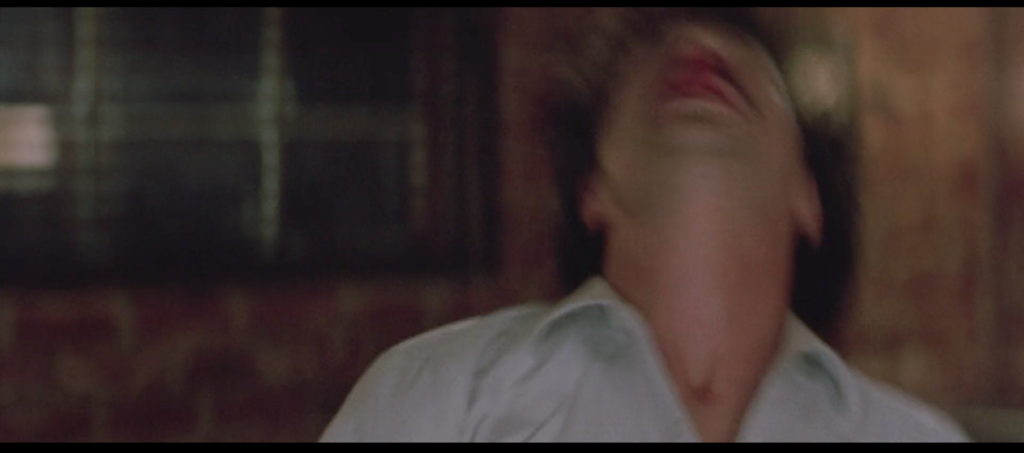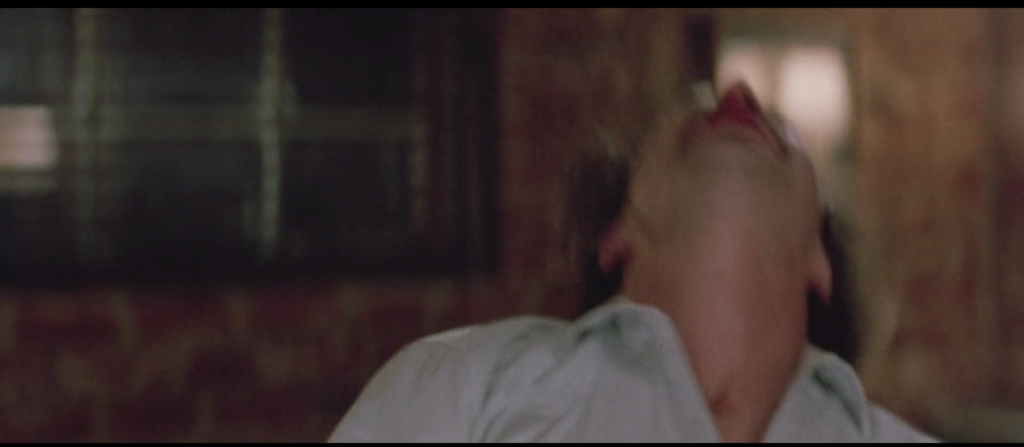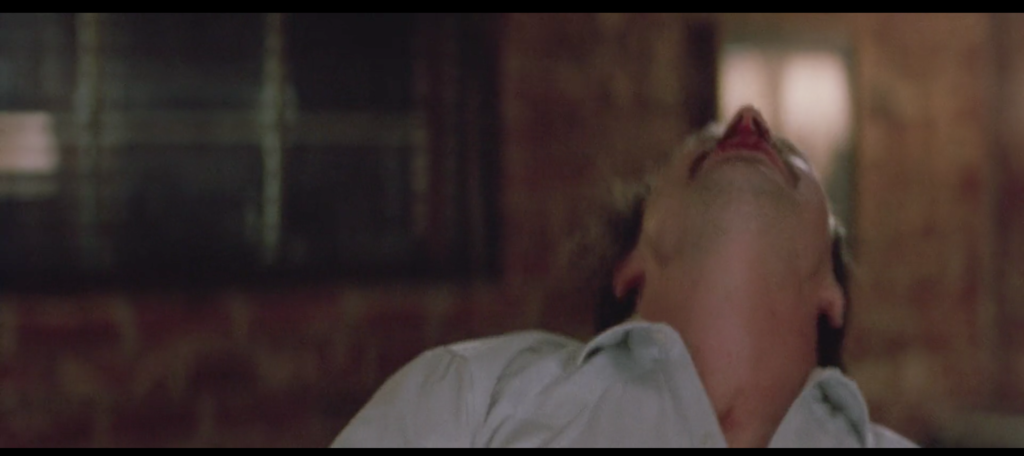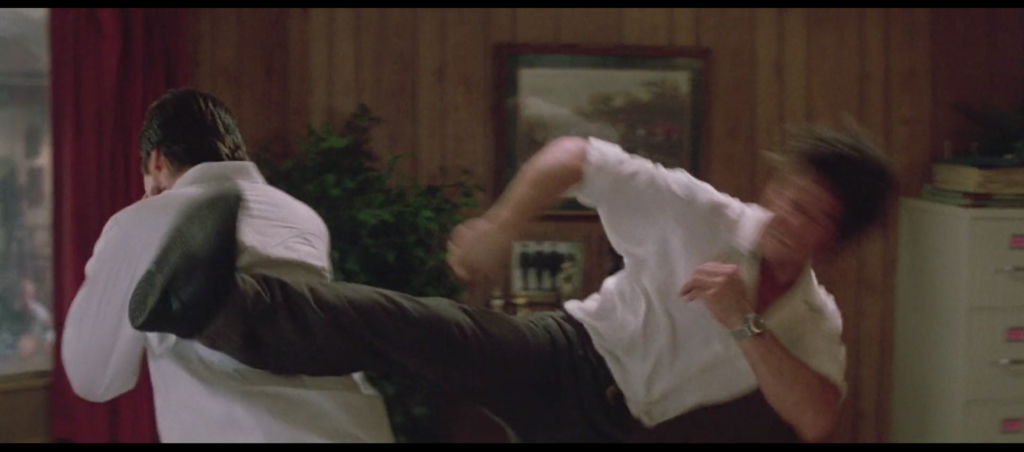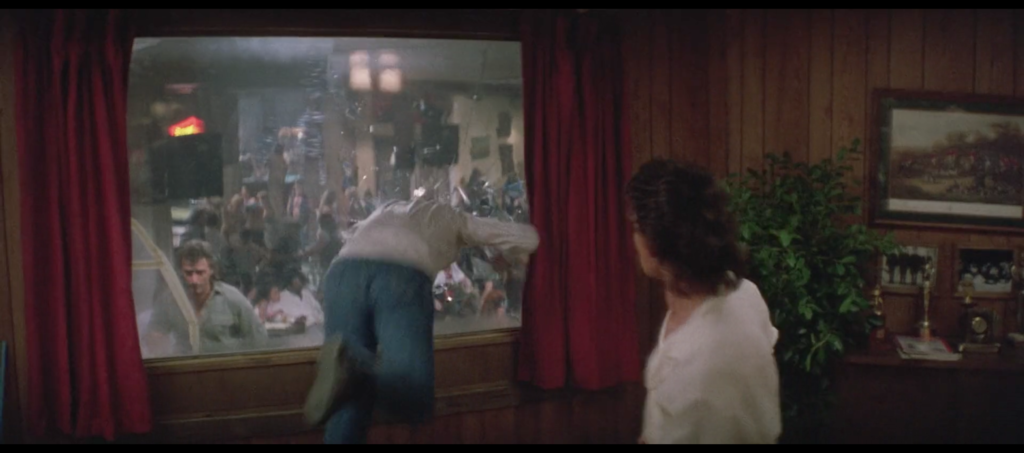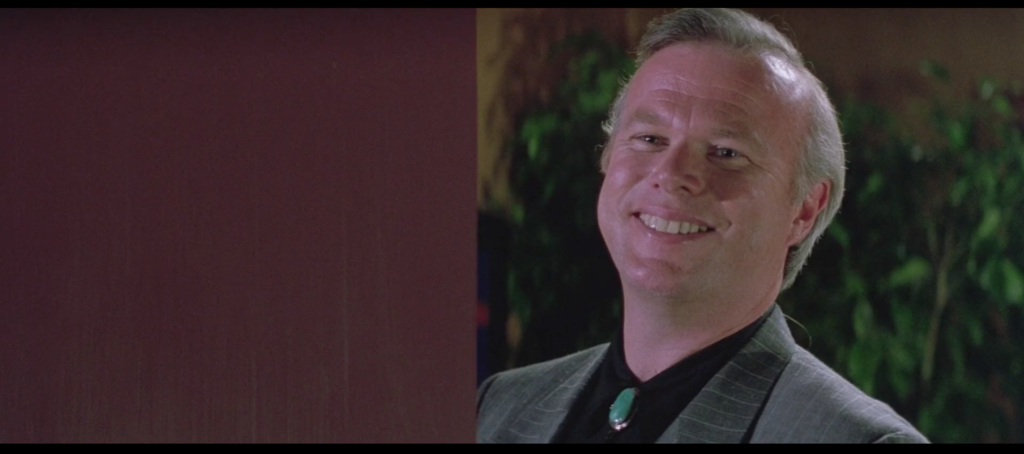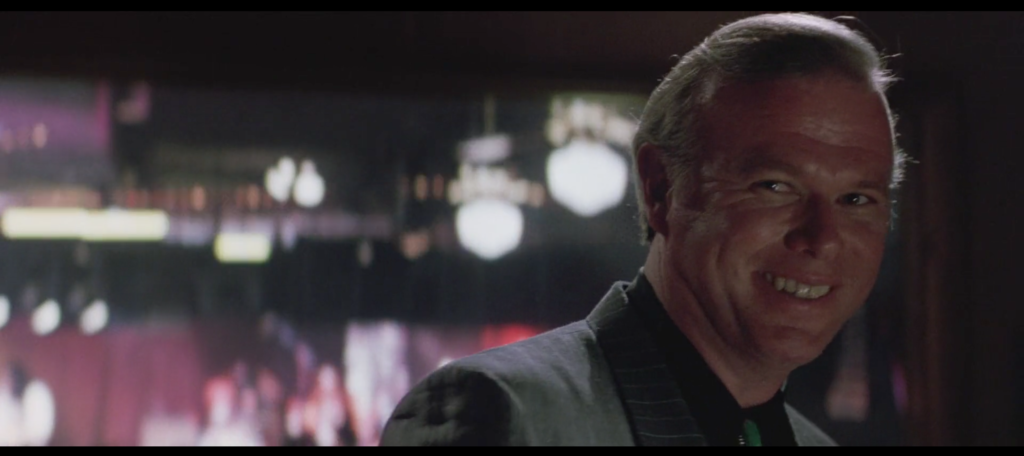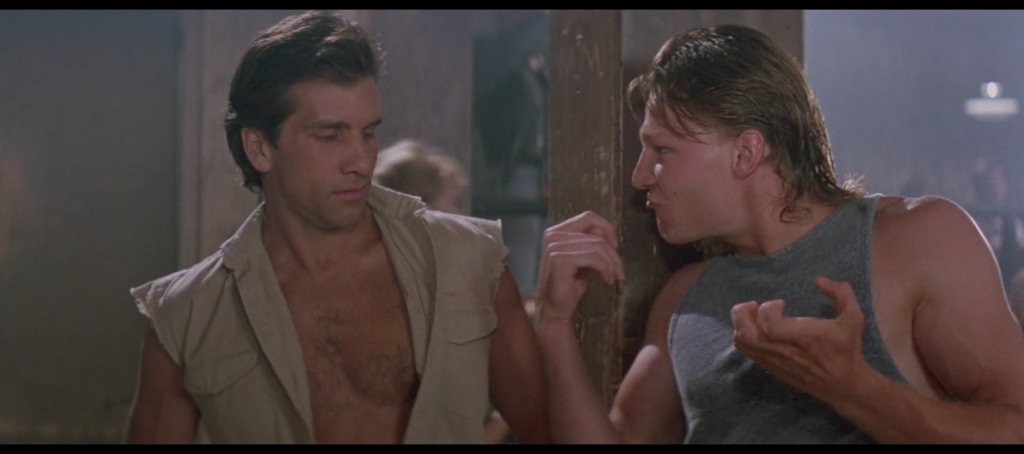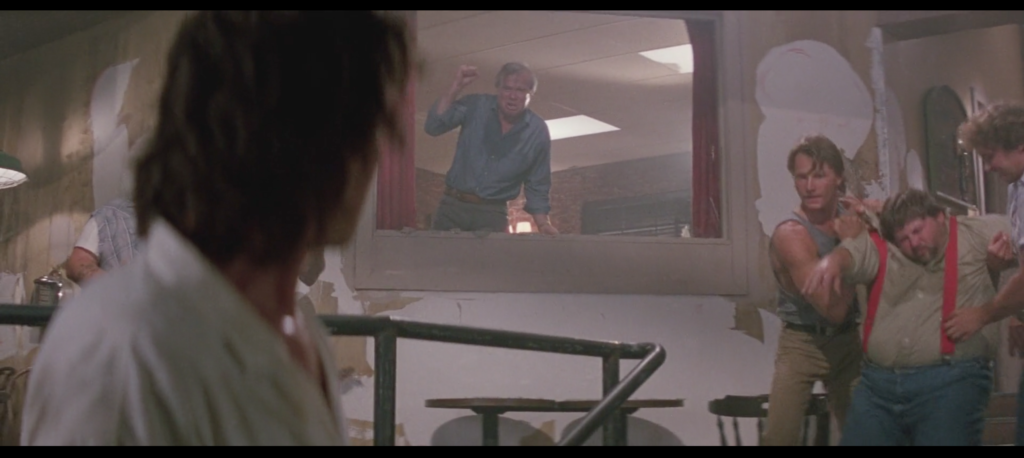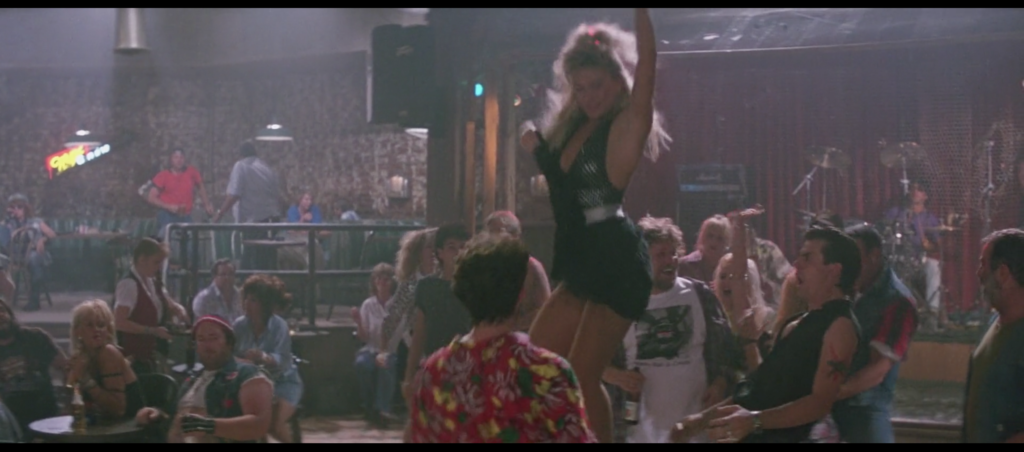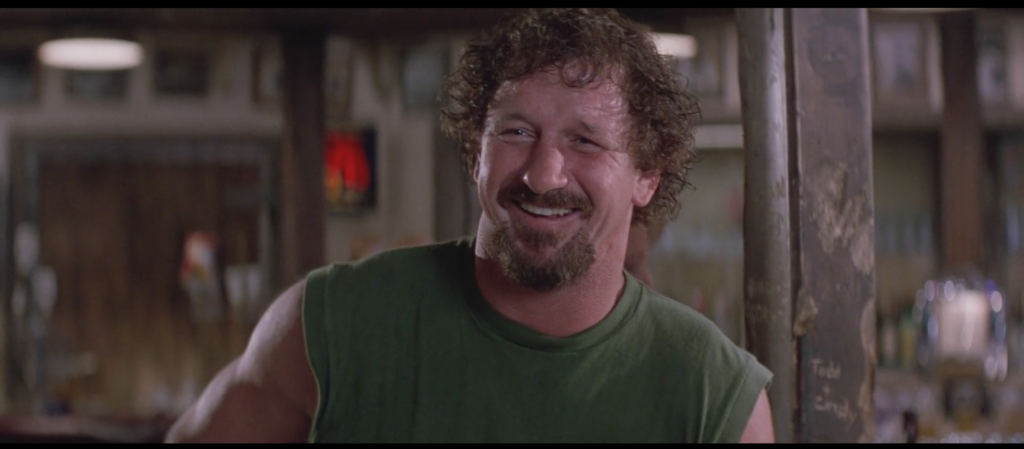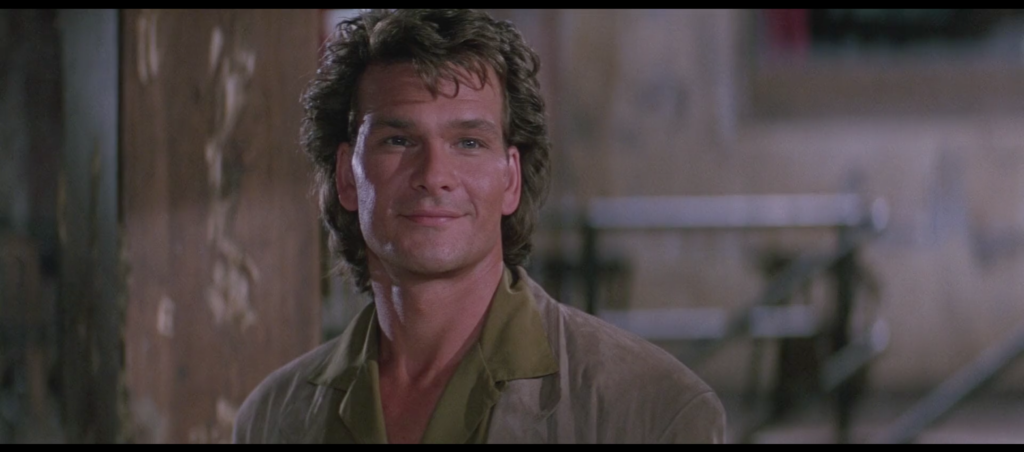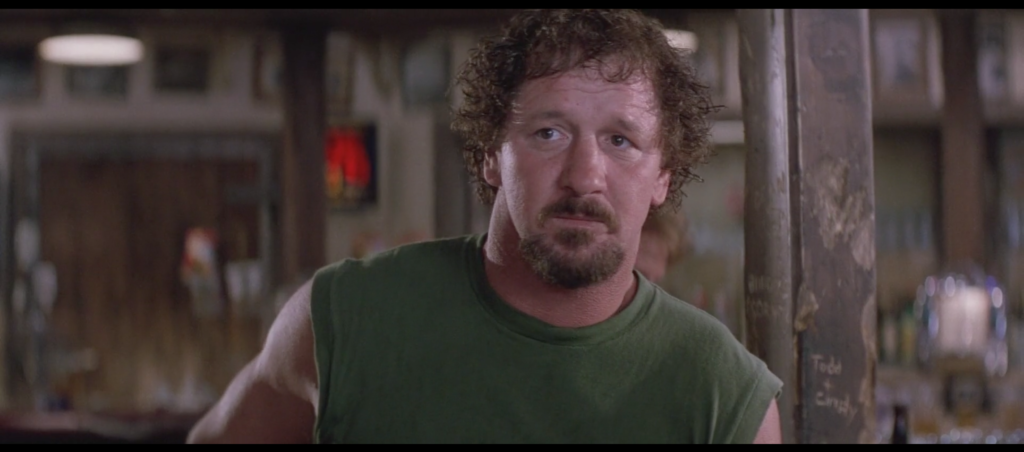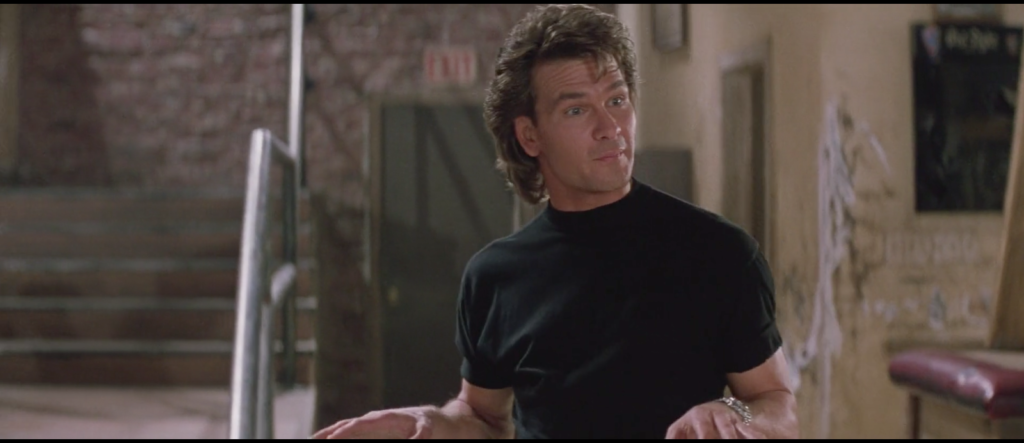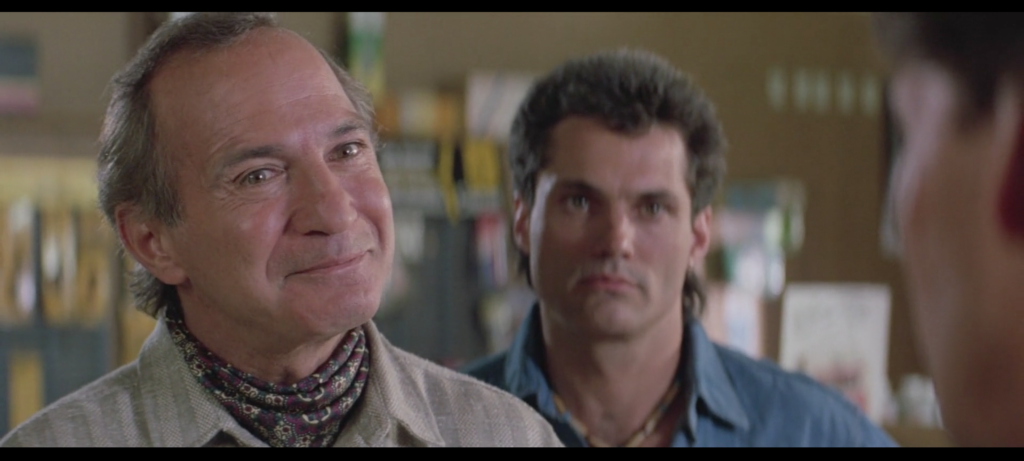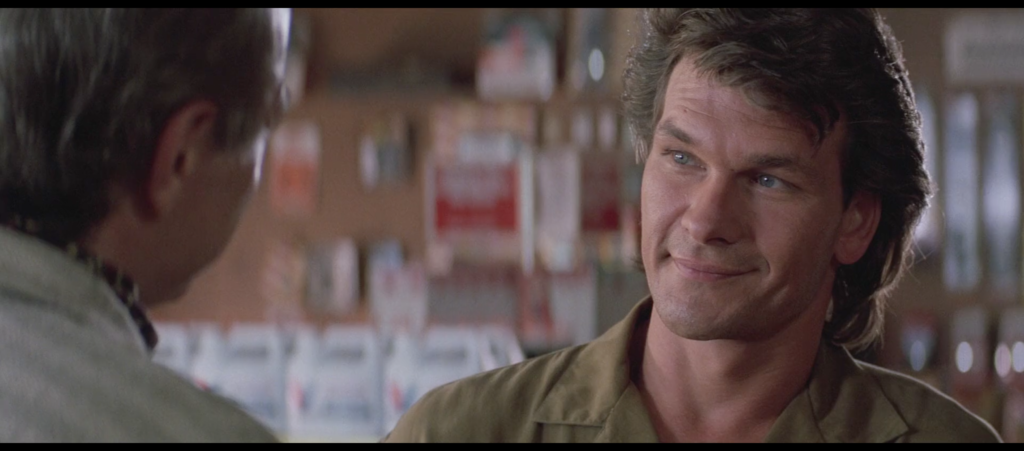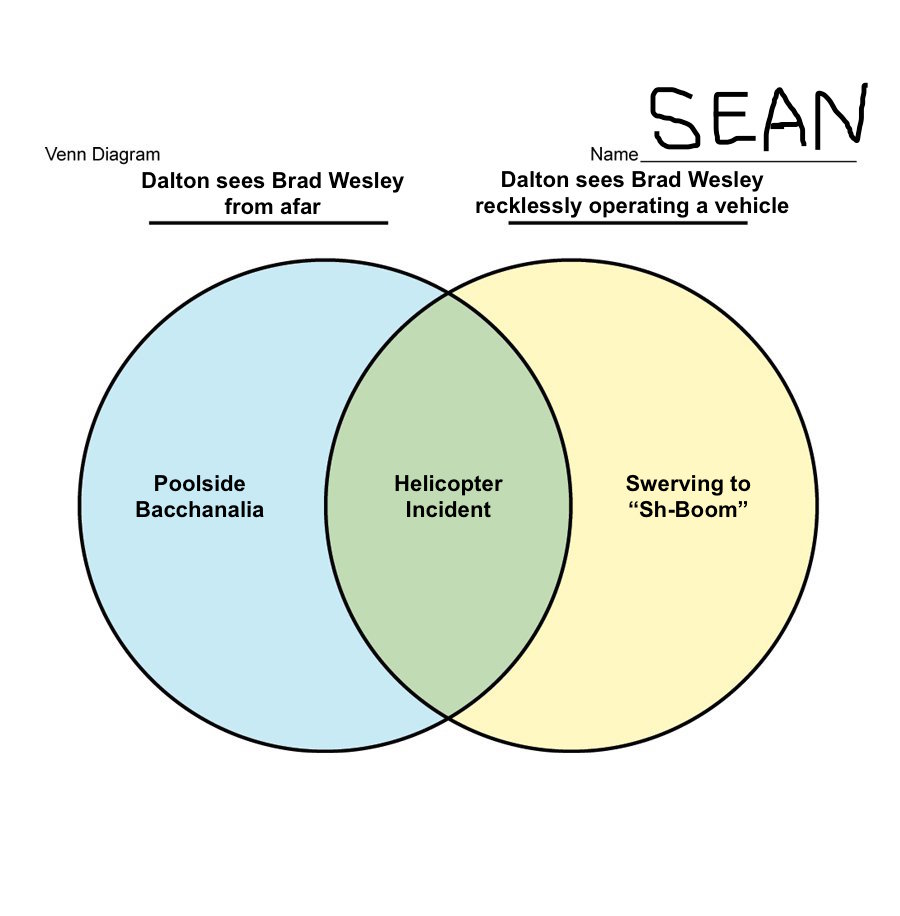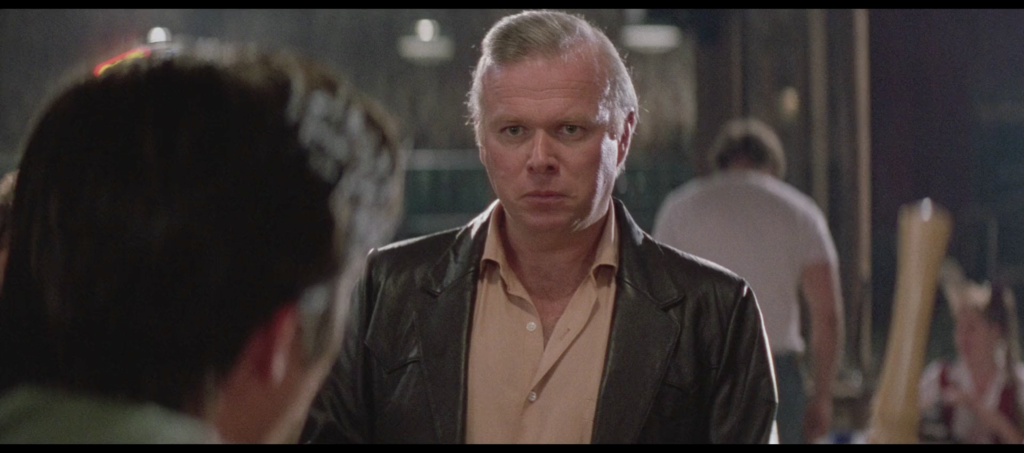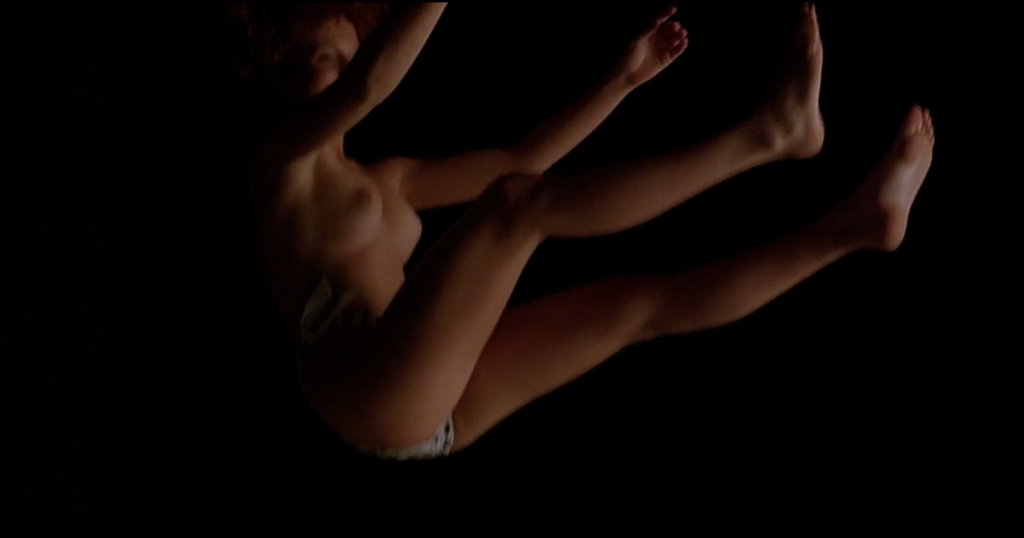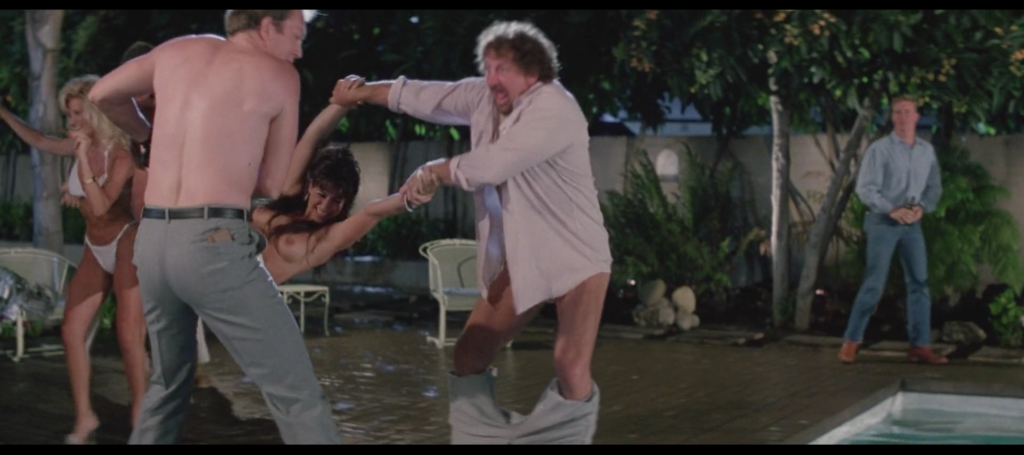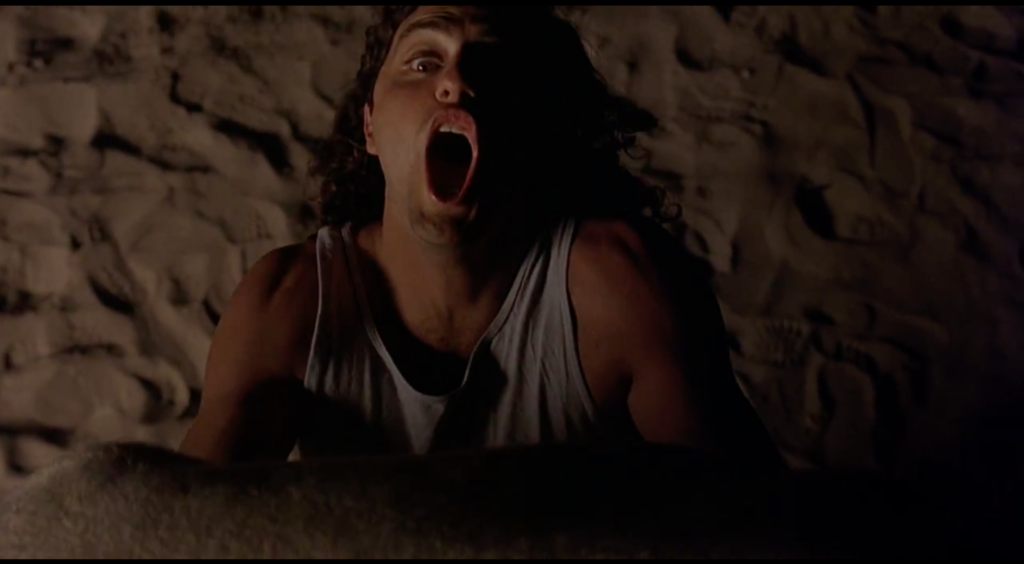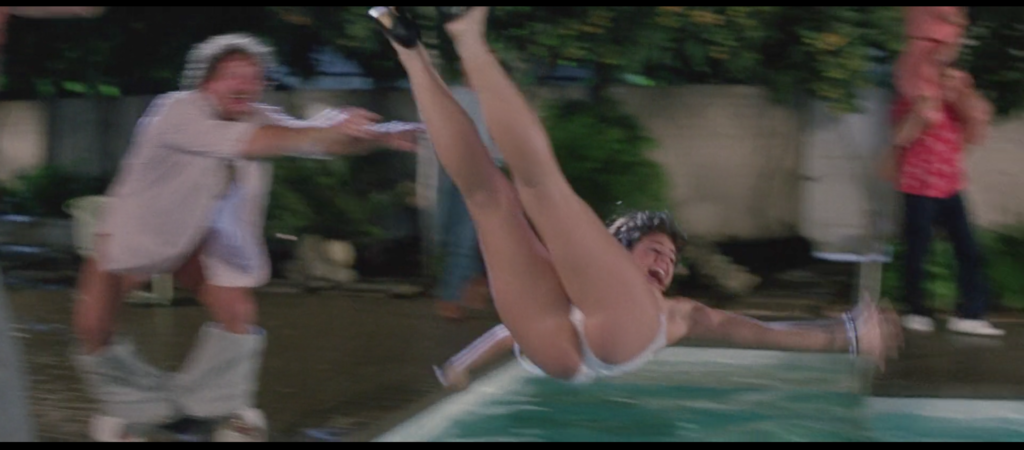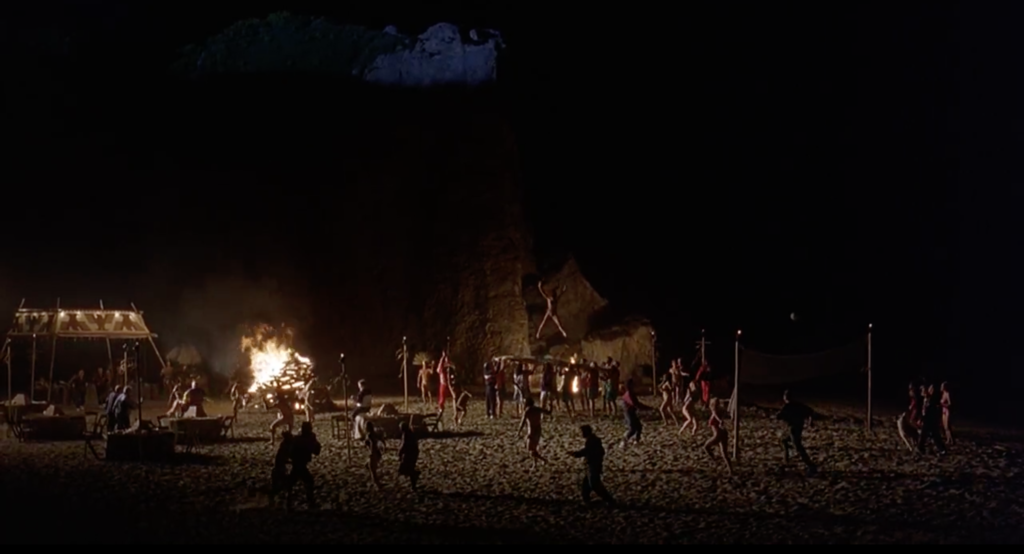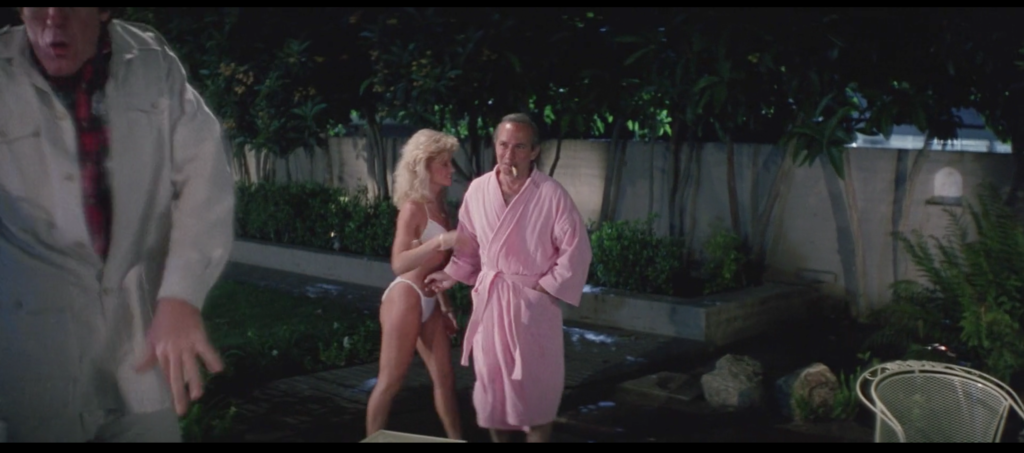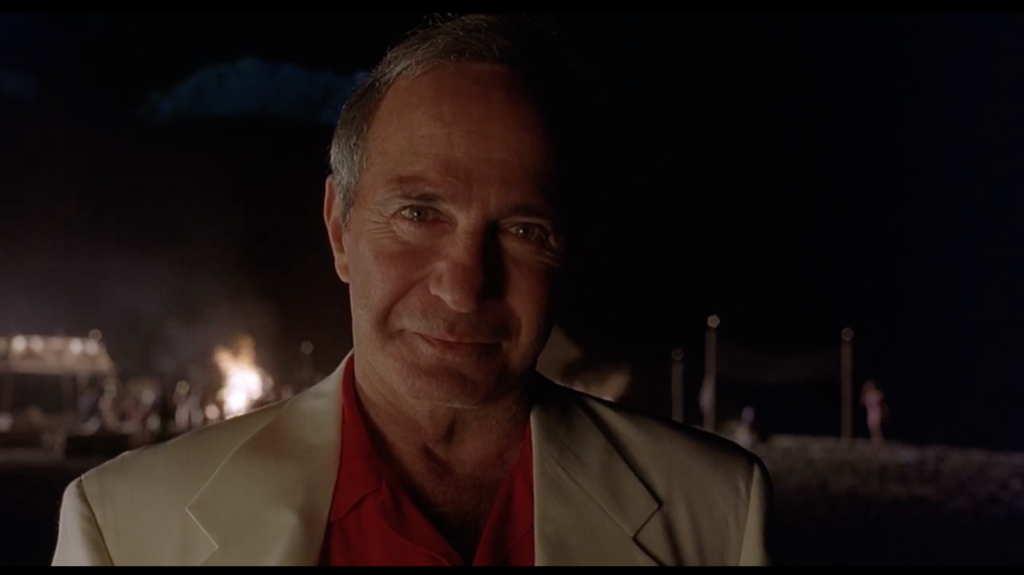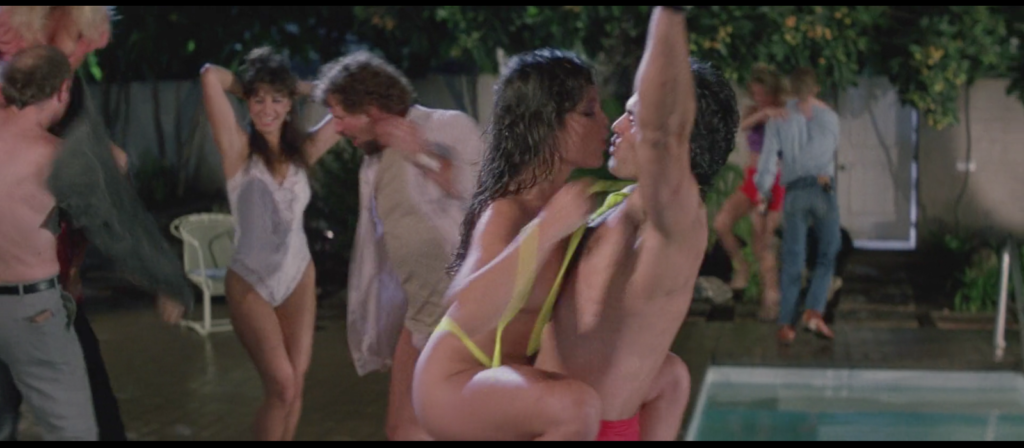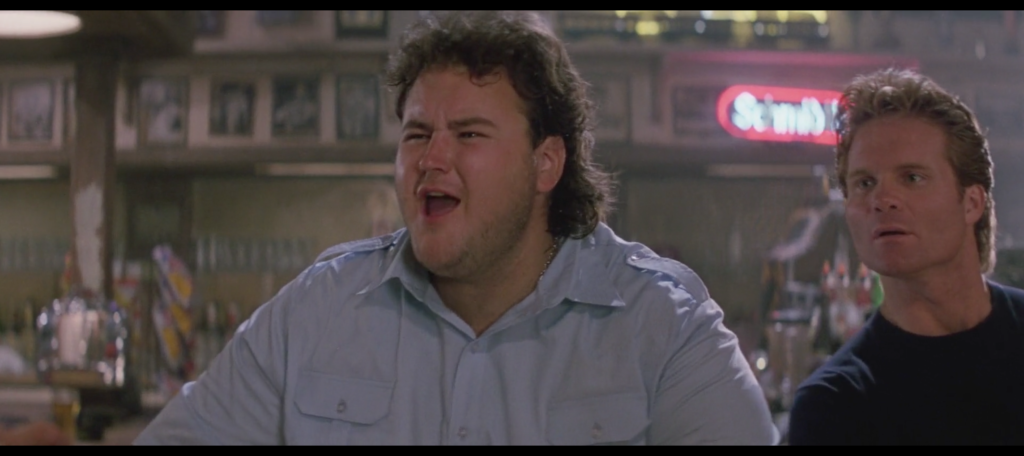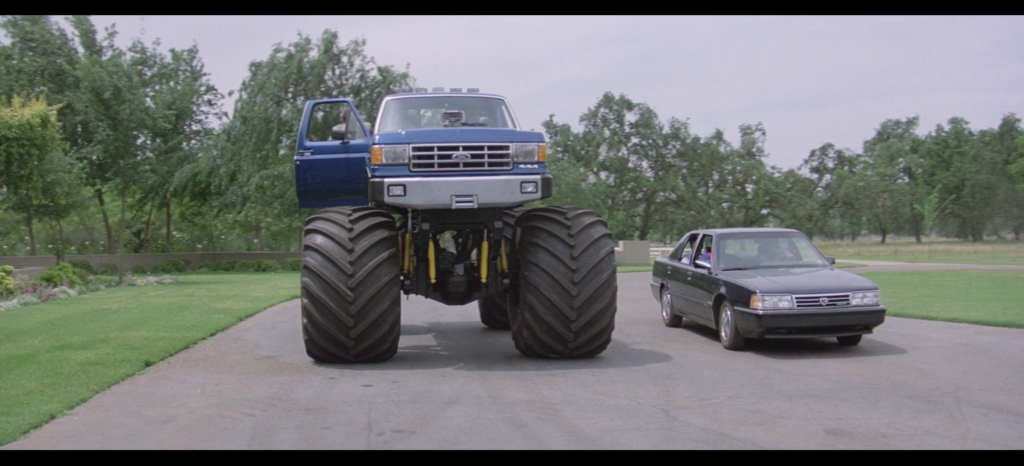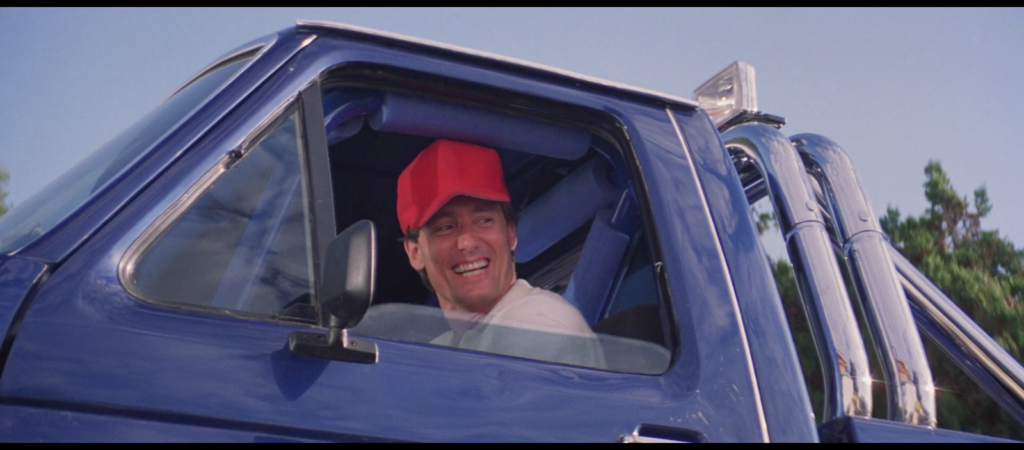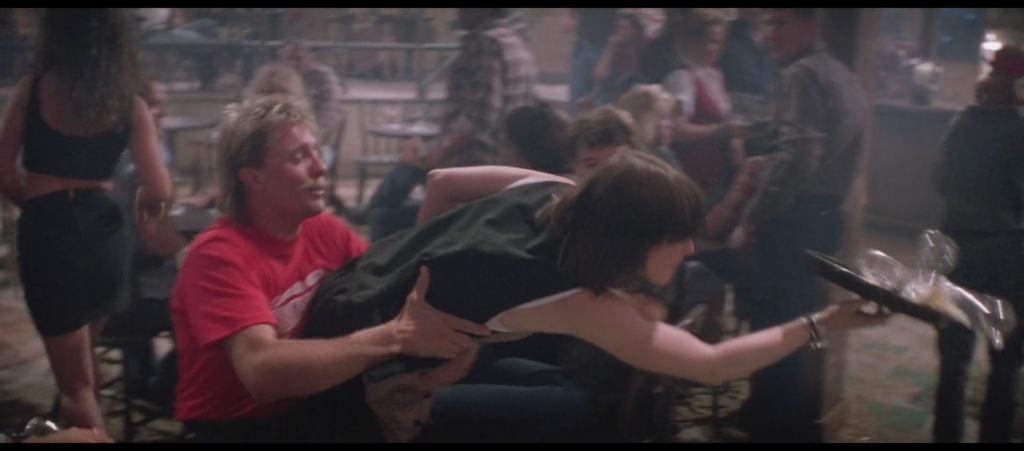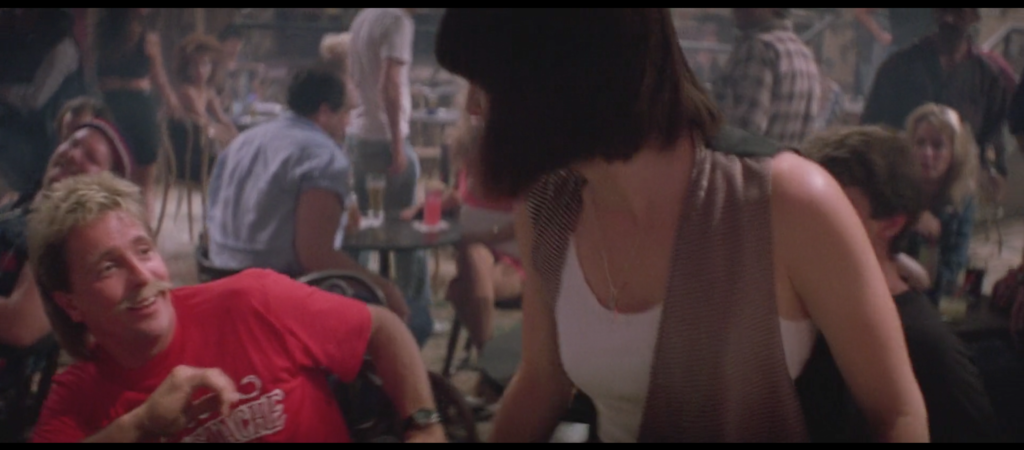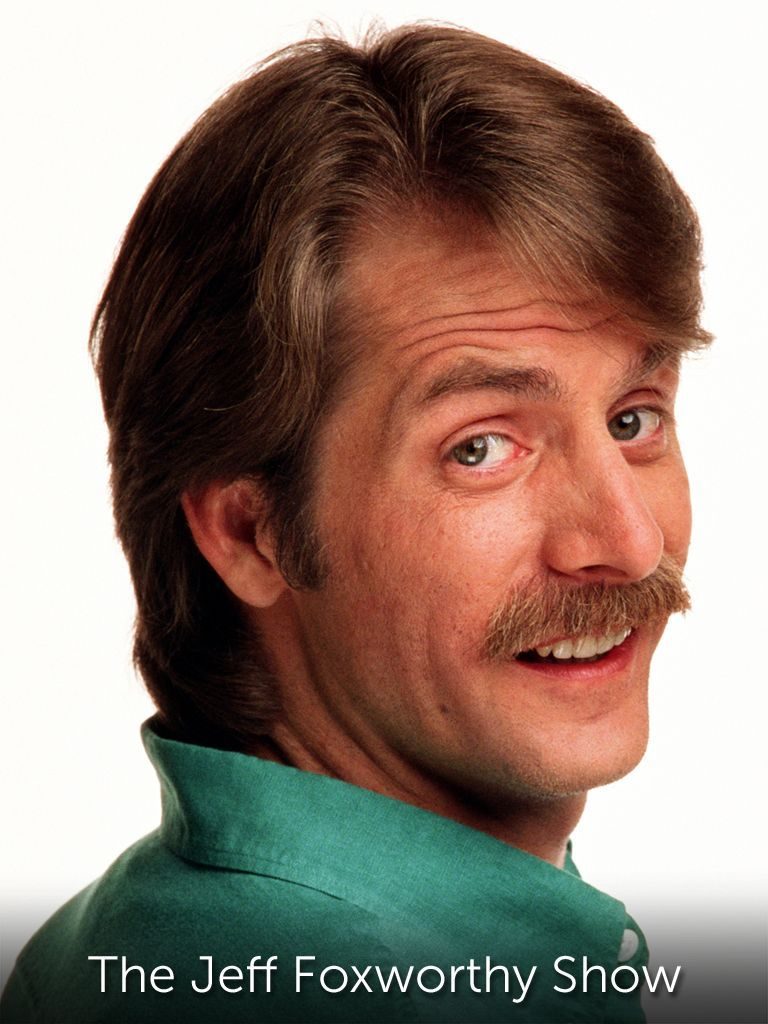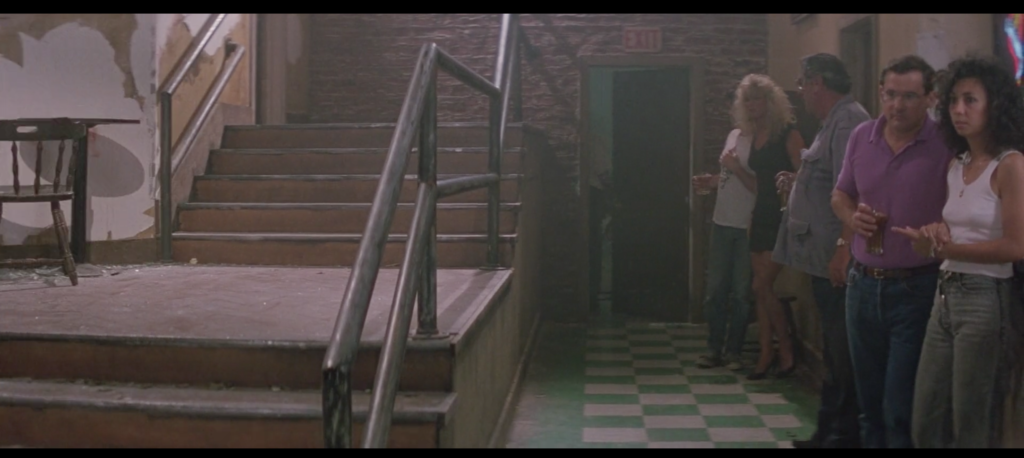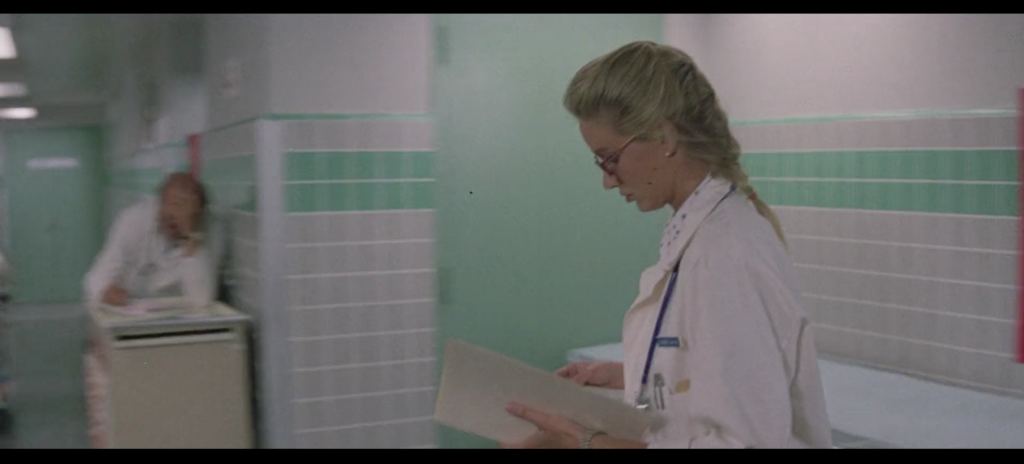Archive for the ‘Pain Don’t Hurt’ Category
060. “Hey, you’re paid to play—play!”
March 1, 2019Here’s a singularly unpleasant chain of events. Wrapping up his latest white-blues scorcher, Cody, the lead singer of the Jeff Healey Band, announces he and the band will be taking a brief break because, quoting here, “gotta drain the main vein.” I go back and forth on this. Not on whether it’s an awful thing to say, because it is; even a film this aggressively stupid that line lands on first-timers like punch in the nose. But in a way I think it’s gutsy to introduce a character by having him use a grotesque euphemism for using his penis to urinate in his first spoken lines of dialogue. And at least it rhymes, unlike “I heard you got balls big enough to come in a dump truck” or “Does a hobbyhorse have a wooden dick” or “I sure ain’t gonna show you my dick” and probably a few other phallocentric howlers I’m forgetting. That’s no doubt one of his proficiencies as a bard.
Then this man—you remember this man, he’s Heckler, played by Charles Hawke, and he’s a non-voting observer nation in The Agreement—then this man says something less unpleasant to read but vastly worse to hear. “Hey, you’re paid to play—play!” he screech-slurs in a hideous Noo Yawk accent that’s practically Piscopovian in its cartoonishness. Rendered phonetically s it’s more like “HAY YA PAID TA PLAY PLAY!“, its dulcet outer-borough tones more than a bit anomalous in a film whose language is listed as “Yokel” on the cassette box.
With that he throws a bottle of beer, still half-full, at the chickenwire fencing surrounding the Double Deuce’s stage. The guy’s got a real cannon of a right hand apparently, because it shatters into a million pieces with a sound you might associate with dinner scenes in which a guest says something so shocking that the hostess drops her plate.
The reaction of Jeff Healey Band frontman Cody is inscrutable. Judging from the way he reaches his hand to his bottom lip and growls “Fuck!” I think we’re to take it that a piece of glass made it through the mesh and cut him on the face, but two data points would seem to dispute this. First, he’s not visibly injured in his ensuing conversation with Dalton, and Road House is pretty fastidious about making sure people bleed properly. Second and more puzzling is his reaction in the moment: He simultaneously snaps his head back and flops forward, as if completely poleaxed. Again, the bottle hit the chickenwire, not him.
The logical explanation is that Cody is a sort of “earth spirit” or personification of the Double Deuce, serving a function similar to that of Tom Bombadil vis a vis Middle-earth in J.R.R. Tolkien’s The Lord of the Rings, though with the additional characteristic of suffering when the place through which his existence is defined suffers. As an elemental of this sort he can be expected to react strongly to damage he senses through his metaneural network. However, at no other point does Cody display this type of symbiosis with the Double Deuce, not even in the cataclysmic brawl that takes place just a few minutes later, so this theory too needs reexamination.
So we turn back to the other participant in this pas de deux, Heckler. Heckler, who lurks on the margins of The Agreement, the dissolution of which nearly destroys the bar. Heckler, who throws a bottle with sufficient force to break it to pieces on a fence. Heckler, who can wound this troubadour with pure mental animus. It seems safe to conclude that he is a black magician, or even a demonic entity himself, warping the world around him with his corrosively evil presence. Witnessing the Coming of Dalton, he wisely chooses to depart rather than test his strength against a servant of the Secret Fire, leaving more ambitious or more foolhardy members of his infernal cohort to fight in his stead. Who knows how many such creatures Dalton has banished by his mere presence.
061. The Third Rule, Verse 2
March 2, 2019“This is the new Double Deuce,” says Frank Tilghman. We are at the start of an all-hands staff meeting, and Tilghman is pointing to the concept art for the bar’s redesign. But standing nearby is his latest hire, Dalton. It is through Dalton, with Dalton, in Dalton that the new Double Deuce will be achieved. Dalton embodies the new Double Deuce. He is its future.
When Dalton takes over as cooler he becomes more than just the chief bouncer. His role is not to handle a series of discrete incidents, but to institute sweeping reforms that will eliminate such incidents forever. “It’s going to change,” he states—not a threat, not a promise, a fact. His bouncers, too, must change for this to take place. As below, so above.
Bouncing on the Dalton Path is a matter of following “three simple rules.”
This, again, is the third.
3. Be nice. (continued)
When first we assayed the Third Rule, I said the following:
It is the shortest rule, and it requires the most explanation. It is the least practically minded rule, and it is illustrated with the most practical applications. It is a rule about being kind to others, on the surface at least, and it is the rule greeted—and at times delivered—with the most open incredulity, even hostility.
When Dalton tells the assembled staff of the Double Deuce to be nice, it is Jack the bouncer who, whether in spite or because of being Dalton’s best student, opens the door for doubt. “Come on,” he says, gently but with unmistakable disbelief. He’s trying to ask his new sensei “Are you out of your mind?” in the politest possible way.
Now comes the yin-yang instructional configuration that should be familiar to us as central to the Giving of the Rules. Dalton leans forward and tells Jack “If somebody gets in your face and calls you a cocksucker, I want you to be nice.” Jack responds with a skeptical “Ohkayy”—and, though he knows it not, passes the test Dalton has just given him in so doing. Dalton got in his face and called him a cocksucker, and he was nice. It takes the doing of the thing to see that it can be done and learn how to do it. If you think this sentence is confusing, then change one pig.
(to be continued)
062. Sears
March 3, 2019Some lines punch above their weight class. You know what I mean? You can feel them searing their way into your brain and then lodging there, as close to permanently as anything can in a world that feels like a blow to the head every day, despite them not being important or funny or even good. One of those quote-tweet audience-response twitter threads went around recently to this effect, asking what obscure movie lines have become a part of your everyday vocabulary or thought patterns. My personal choice, besides the obvious, is a woman at a dinner party in Hellraiser squawking “Doctors!” in this over-the-top, probably dubbed-to-replace-an-English-accent what a world way, and her husband responding with a “That’s right, honey” so patronizing it makes your eyes water.
I can currently feel this happening with poor Jack, that’s him on the right above, trying and failing to prevent his fellow bouncer Horny Steve from allowing two young women below the legal drinking age from entering the Double Deuce with IDs so woefully inadequate to the task of age verification that they aren’t even fake. “This is a Sears credit card” he tells Steve, who’s in the middle of greeting his lady friends Beverly and Agnes and could not possibly care less. I feel it searing, and I swear there was no pun intended. I feel it becoming the way I react to any frustratingly bogus situation or nonsensical explanation, like the pet-shop clerk who tells Parker Posey “This is least like a bee of the ones that we have here” when she’s desperately searching for a replacement Busy Bee for her dog in Best in Show, or Kramer and company shouting “These pretzels are making me thirsty!” in Seinfeld. Car says it’s out of gas even though it previously said there were forty miles left in the tank? This is a Sears credit card! Laptop won’t remember a password I’ve entered in a million times? This is a Sears credit card! Politics??? This is a Sears credit card! I will never see the softer side of Sears again. I accept this.
Pain Don’t Hurt: The Patreon
March 4, 2019The name…is Sean T. Collins. I’m a writer and critic who’s appeared in The New York Times, Rolling Stone, Pitchfork, Vulture, Decider, Grantland, the AV Club, and more. I’m also the co-founder (with Stefan Sasse) of The Boiled Leather Audio Hour, a podcast about Game of Thrones & A Song of Ice and Fire, and the co-editor (with Julia Gfrörer) of Mirror Mirror II, an anthology of horror/erotic/gothic comics and art published by 2dcloud. I’m The Original Bad Boy of TV Criticism. I gave this nickname to myself as a joke but it stuck so it counts.
Also, I love Road House, the 1989 Patrick Swayze action movie. Road House is the story of Dalton, a famous bouncer whose quest to free a small town from the iron fist of the guy who is on the verge of opening the area’s first JC Penney will lead directly to the deaths of over half a dozen men. I love Road House so much in fact that in late 2018 I decided I would write an essay about Road House every single day for an entire year, that year being 2019—on top of the TV recaps, album reviews, film and television recommendations, and broader essays and deep dives I write for a living.
In the words of Road House, I’d like to make a better life for myself.
By subscribing to my new Patreon you’ll make Pain Don’t Hurt a paying concern. If you’re a fan of my Road House stuff this sells itself. But the beauty of getting paid to write about any one thing is that it makes it possible to write even more about other things. If you’ve ever enjoyed anything I’ve written, subscribing here is the best way to see more of it—both through tiered rewards that give you access to bonus stuff and simply by helping my family and I stay afloat so I can do more of the writing I love. (I love to write even more than I love Road House, though it’s obviously close.)
Friends, it’s time to be nice. Join the Jasper Improvement Society today! Thank you for your support!
063. Patrick Swayze Beating the Shit out of John Doe from X
March 4, 2019Road House is a film in which Patrick Swayze beats the shit out of John Doe from X.
It’s simple, really. Sister-son Pat McGurn returns to his former place of employment with his uncle’s most useless enforcers O’Connor and Tinker in tow in order to force proprietor Frank Tilghman to reverse the decision of the bar’s new cooler Dalton and reinstate him to his position of bartender. Dalton takes very mild issue with the plan. Pat whine-gloats like a petulant child who thinks their parents are gonna punish their little brother and not them, then produces a knife the size of a machete and proceeds to simultaneously slash at and gay-panic taunt Dalton. Dalton punches his nose in. While he holds his hands to his broken face and howls in pain, Dalton spin-kicks him through a plate-glass window. He remains incapacitated for the duration of the fight that ensues, after which he is bodily carried out of the bar.
Concerned that Pat McGurn didn’t receive enough punishment? I’ve got you. First it’s important to note that by the end of the film Dalton will murder Pat McGurn, using the body of a dying goon to block Pat’s shotgun blast, then withdrawing the knife he’d inserted into the now dead goon’s gut and throwing it into Pat’s chest, causing him to misfire one last time and then plummet from a second-story landing to the ground below. Second you’ll notice from those screenshots that Pat’s nose was already bleeding before Dalton’s punch connected; you can call this slapdash continuity if you want, but I prefer to believe that either his body anticipated the damage that was about to be done to it and started hemorrhaging spontaneously, or that Dalton caused him to bleed without touching him by sheer force of chi. Or both! I’m not picky.
But here’s the bottom line, friends: Road House is a film in which Patrick Swayze beats the shit out of John Doe from X.
064. I Thought You’d Be Bigger Vol. 1: Tilghman
March 5, 2019At the end of their first encounter Frank Tilghman tells Dalton “I thought you’d be bigger.” This is Road House‘s primary recurring joke; you’ll hear it two more times from two other people. It’s probably swiped from everyone telling Snake Plissken “I thought you were dead” in Escape from New York, for what it’s worth. It’s a groaner, and it’s endearing in its groanerness over time.
It is also a weird thing to say to someone you just met. It’s a weird thing to say even if they’re a person whose job is usually associated with being of a certain size. Imagine meeting a professional wrestler or basketball player and saying that: You can picture the mechanical smile and hear the canned response already, right? Because chances are it’s not the first time the person in the job usually performed by a bigger person has been made aware that they are, comparatively speaking, smaller. It’s more likely that they’ve thought about this for literally decades, like since they were in first grade, than that this charming bit of banter will catch them delightfully unawares.
Frank Tilghman is a weird guy, though, whether by design or by Kevin Tighe’s inability to play him any other way. (A reader I’ve since argued with because I think it’s more likely Steven Spielberg has cinema’s best interests at heart than Netflix does suggested he auditioned for the Brad Wesley part, got Tilghman instead, and simply decided to play the role as Brad Wesley anyway, and it’s a damn good theory.) If you could dress a leer up in a bolo tie, that’s Frank Tilghman. He looks like a police sketch based solely on an eyewitness saying “He was some kind of pervert.” If you can watch him during the opening of this movie and not assume he’s the villain of the piece, I think that constitutes a Turing test failure.
Nevertheless he is one of the good guys, he has no ill intent toward Dalton, at no point does he do anything to antagonize or undermine or bamboozle or even overtax Dalton during his employment at the Double Deuce. This only makes “I thought you’d be bigger” even weirder.
Yet the way he says it is the weirdest thing of all, way more than the mere fact of saying it. He’s closes a deal bringing the best young cooler in the nation into the fold for a cool mid-six-figure salary, with no set start date. He does this while watching Dalton a) stitch himself up from a knife wound Tilghman also watched him incur minutes earlier, and b) summarily quit his current job while treating the owner of the bar he’d worked in like dogshit. And what does he do on his way out the door but pause, flash that unmarked-van grin, and say “You know, I thought you’d be…bigger.” The ellipsis represents a pause so pregnant with implication and innuendo its water is breaking, and the emphasis on bigger is definitely in the original, and did I mention he literally looks Dalton’s shirtless body up and down as he says this?
Now then. Do we have reason to believe Tilghman lusts after Dalton? Yes: Dalton is reason enough for anyone to lust after Dalton. Do we have reason beyond that? Yes: My theory that he and Pat McGurn were at one time involved romantically for one thing, or my other theory that the mysterious fortune he’s suddenly come into that allows him to renovate the Double Deuce and hire Dalton to keep the place secure came from an old rich widow he seduced as a closeted gigolo, persuaded to change her will to make him her sole beneficiary, and then tossed over the railing of a cruise ship, like the “Not great, Bob!” storyline from Mad Men, would (if true) indicate he is attracted to men and also makes destructive decisions in that regard. Are we intended to read his “I thought you’d be…bigger” as both a come-on and a sexualized dick joke? Yes: Our eyes and ears are not lying to us.
Do we need to respond with the kind of gross shitty gay-panic laffs we might have expected from movies and audiences alike for decades prior to this film’s release and at least a couple decades after it? No! The proper way to respond is this. First, to paraphrase RiffTrax’s Mike Nelson, the question of whether Kevin Tighe is trying to bed down Patrick Swayze, or the character equivalents of same, is a fascinating one on its face. It’s like when you learn Kate Beckinsale has a kid with Michael Sheen, which many people just learned when they also learned Kate Beckinsale is fucking Pete Davidson, the Saturday Night Live lotto winner who was previously fucking Ariana Grade. “A lot going on here,” I believe is your American expression, yes?
Second, and more importantly, this is a workplace safety issue, because Frank Tilghman absolutely is sexually harassing his new employee here before his first day on the job! Frank Tilghman may be on the side of the angels where the larger war for the soul of Jasper, Missouri is concerned, but he is without question an awful boss. Remember that before Dalton, Tilghman’s hires (that we know of) include two Brad Wesley goons and an extremely surly and obvious coke dealer and a guy who allows teenagers into the bar so he can have sex with them. The fish rots from the head.
Seen in this light, “I thought you’d be…bigger” becomes more than a come-on or a dick joke. It’s a cry for help. Frank Tilghman knows the magnitude of the task ahead of him—not cleaning up the Double Deuce, that’s just a metaphor, but cleaning up Augean stables of his very soul. To Tilghman, that is Dalton’s true task. Beneath the clumsy curiosity about his new hire’s penis lies the real question: Is he man enough to make me whole?
065. “He killed a guy once. Ripped his throat right out.”
March 6, 2019When Frank Tilghman traveled to New York (City?) to hire the (second) best damn cooler in the business and also cast humorous aspersions on the size of his penis, we in the audience pretty much had to take his word for it. Dalton has great hair, a great body, a cool as ice demeanor, the ability to dupe Knife Nerds into leaving a bar of their own volition, and the stomach to stitch up his own knife wounds, yes. But actual bouncing? No evidence of that just yet, much less enough to decide that this lion-maned man is a one-man army in a throwdown.
Conveying just what Dalton is capable of in the clutch (literally) falls to Hank, the Double Deuce’s resident Dalton fanboy. When Dalton first arrives and word of his identity gets around—he tells Carrie Ann and Pat McGurn overhears and thus the legend is spread—the bar’s staff are all aflutter, some with excitement, some with skepticism, some with…whatever emotion covers “shit, I’m not going to be able to steal from the cash register/beat up patrons at random so easily anymore.” Hank is on the excitement end of the spectrum.
“He killed a guy once,” Hank tells his fellow bouncer Horny Steve as they lounge against a wooden post while wearing what would, if combined, amount to nearly one whole shirt. Hank shoots his left arm forward across their bodies, then pulls it back hard, raking his clawed fingers against the air just in front of Steve’s neck. “Ripped his throat right out,” he explains. He sounds like he’s talking about Regina George.
Our man Steven is unconvinced. “Bullshit,” he replies, only he pronounces it in that great movie-hardass way: “Bull shit,” two words, like the t-shirt the kid wears in The Jerk. And for all we know, Steve has the right of it. The way people have carried on about Dalton in this movie so far, there’s no telling what he’s actually capable of on the one hand, and how much his reputation has been exaggerated by the awestruck barfolk of the world. After all, Carrie Ann the extremely cool waitress recognizes his name instantly and reacts like she’s just realized she’s been making small talk with INXS’s Michael Hutchence. People are bowled over by this dude.
Also, and I think this is crucial to understanding a lot of what goes down in the first act of the film, nearly everyone we meet is very stupid. Dalton’s not and Tilghman’s not, that much is clear. But by the time the film hits the 15-minute mark, a grand total of nine words longer than two syllalbes, and zero words longer than three, have been uttered; of those nine, one is “peckerhead” and another is “attitudes.” It’s not difficult to imagine convincing Hank here that Dalton is bulletproof.
But even an extremely dumb clock tells the right time twice a day.
066. Frank Tilghman’s fist
March 7, 2019One thing I never noticed before starting this project, one thing I never noticed before tonight in fact, one thing I never noticed despite watching Road House dozens of times over the course of nearly fifteen years, is that when Brad Wesley’s goofiest goons, Tinker and O’Connor, come to the Double Deuce with Wesley’s nephew Pat McGurn to force Frank Tilghman to overrule Dalton’s decision to fire Pat under threat of physical harm and the cessation of liquor shipments to the bar due to Wesley’s control over distribution in the Jasper, Missouri metropolitan area, and Dalton expresses skepticism about the idea, and Pat almost instantly loses his fucking mind and attempts to slice Dalton open with a knife the size of a Little League baseball bat, and Dalton breaks his nose and tosses him through a plate glass window, and O’Connor assaults him and they both go tumbling through the place where the window used to be, and they fall first to a raised dais and then make their way to the main floor below after O’Connor bumrushes him over the railing, and Dalton pounds the crap out of him and eventually beats him unconscious, and doesn’t even bother to deliver a coup de grace, just kind of holds O’Connor up by his jacket for a moment and then drops him to the ground in disgust, and meanwhile Tinker, who during Dalton and O’Connor’s initial fight in Tilghman’s office punched Tilghman in the gut and then sliced Dalton open with his own knife and then punched Dalton in the face before Dalton kicked him in the chest for leverage to thrust himself and O’Connor through the window, meanwhile Tinker he suckerpunches Younger when he rushes through the door to see what’s going on, but then Hank comes in to help and he and Younger incapacitate Tinker and punch him in the gut while holding him still which is the kind of thing villains do but all’s fair in bouncing, and as Jack and Hank and Younger drag the punchdrunk bodies of their enemies through the bar and presumably to the exit, and Dalton is all covered in sweat and blood and getting ready to head out the back door and go seek medical attention, Tilghman, you remember him, Tilghman staggers over to the broken window and makes eye contact with Dalton and raises his right fist in a gesture of triumph and solidarity that’s one of the most ridiculously obsequious things Tilghman does in the whole movie, which in the parlance of our times puts it in the running for most ridiculously obsequious thing worldwide, I mean Tilghman contributed nothing to the fight, he just got winded by Tinker until he was rescued by the other bouncers, but there he is, small business owner, vicariously victorious in his non-worker role, and Dalton gazes into the fist of Frank Tilghman, as he raises that five-sided fistagon, as the bodies get dragged away.
067. Table dancer
March 8, 2019“We don’t cause trouble, we don’t bother nobody.” Few of the barflies whose acquaintance either we or the staff of the Double Deuce have the good and/or mis fortune of meeting adhere to Rick the Ruler’s public proclamation of good behavior as closely as Table Dancer. Played by Sylvia Baker, she’s the character who dances on a table. Here are things that, based on the conduct of other barflies in the film, she could reasonably be expected to do instead:
- Pull a knife and threaten to stab someone at a moment’s notice
- Pull a knife and attempt to stab someone at a moment’s notice
- Pull a knife and actually stab someone at a moment’s notice
- Agree to grope a woman’s breasts for money without actually having the money
- Wallop the shit out of someone who groped a woman’s breasts for money without actually having the money
- Offer her breasts to be groped for money without first doing due diligence
- Have a fistfight on the floor with a sibling
- Propose getting nipple to nipple
- Lob a beer bottle at a blind man’s head because he says he has to urinate
- Laugh like an imbecile
- Drink until incapacitated
- Have sex with an employee in the storeroom
- Be part of a team sent by a local businessman to assassinate a bouncer
- Not wear a shirt
- Purchase and snort cocaine, though somehow not in that order
- Deface the walls with vulgar graffiti
- Locate the vehicle of a bouncer, slash all its tires, break its radio antenna, smash its windshield, and shove an entire stop sign through the window
- Say “dirtball” or “moose-lips”
- Wear a very loud shirt
All Table Dancer wants to do is gyrate spasmodically on a table to the Jeff Healey Band, occasionally lifting her skirt to show that her silver-black bodysuit goes all the way down. It’s her rat-faced boyfriend who decides this is worth committing murder in a room full of witnesses for, not her. She doesn’t even get upset when Dalton rams her boyfriend’s skull through furniture solid and steady enough for her to dance on. She’s just like “Oh! Party’s over I guess” and takes Dalton’s extended hand to climb down off the table, then looks him over like the snack he is as she leaves.
Table Dancer represents the joie de vivre to which the rest of the film’s barflies should aspire. Would Dalton have been so quick to send Hank in to break up the party if this were the worst of the behavior one could expect of the Double Deuce’s clientele? I think not. She falls victim to broken-windows policing more than anything else, like how Giuliani used to shut down all the clubs where black people went to listen to hip-hop to make the city safe for oligarchs, somehow. Am I saying Dalton gentrified and Disneyfied the Double Deuce?
Am I?
068. “Opinions vary.”
March 9, 2019Morgan: “You know, I heard you had balls big enough to come in a dump truck, but uhh…you don’t look like much to me.”
Dalton: “Opinions vary.”
Morgan: […]
Morgan does not have the right temperament for the trade, but he does know a threat when he sees one. To a fault, perhaps. His biggest fault as a bouncer, aside from working for the local crimelord, is that he exists in a permanent state of bouncing. To Morgan, every customer is a peckerhead who’s been slugged in the gut and physically thrown through the front doors into the parking lot—they just don’t know it yet. Morgan’s great task in life is to be the one to inform them, with his fists. Witness the first thing he says to Dalton: “And if you’re not drinkin’, you’re outta here.” This is just after he ejected Mister Nipple to Nipple, and in the process upended a table and sent several perfectly pliant patrons of the establishment ass over elbows to the ground. You’d think he’d have bigger fish to fry, but no: The silent stranger with the magnificent head of hair is another threat waiting to be neutralized. Morgan is a preemptive strike in a sleeveless green t-shirt. Existing in this state of constant certitude—that everyone’s an asshole but you, and that it’s your job to pound that knowledge into them—makes Morgan ill-prepared to brook even the slightest dissent.
Witness the above exchange after Dalton’s first night visiting the Double Deuce. Morgan has just participated in a bar-wide fight that leveled nearly everyone and everything in its path; Dalton sat the whole thing out, observing from a distance and then meeting in Tilghman’s office for an off-screen tête-à-tête. So perhaps Morgan’s skepticism about Dalton’s martial prowess is warranted, though expressed it a needlessly condescending way.
To his credit, Dalton doesn’t even disagree with him, not explicitly. He neither confirms nor denies whether his balls are big enough to come in a dump truck, or whether he looks like much, or whether he is much. All he says is “Opinions vary,” and that’s enough to transform Morgan’s whole affect to a comical degree. (Terry Funk is a perform accustomed to playing to the cheap seats, after all.) He goes from a smirking prick to a puppy who just heard “Bad dog!” within about one second, all because Dalton suggested that points of view exist besides Morgan’s own. That’s it, that’s all it takes. If Dalton had walked right up and cold-cocked him it would have had less of an impact.
Aside from Dalton and Wade Garrett themselves, Morgan is by all appearances the most experienced bouncer in the film. Not for him, the Dalton Path. Not for Morgan, the Way of Wade Garrett. The Morgan Idea holds that Morgan is the master of everything and decides everything. Dalton’s simple statement that this is not so strikes at the man’s very soul; by resisting he has signed his own death warrant. That dump truck is barreling down the road toward him at 100 miles an hour, loaded for bear with Dalton’s balls, and he is constitutionally incapable of getting out of the way until he kisses the grill.
069. The Third Rule, Verse 3
March 10, 2019“This is the new Double Deuce,” says Frank Tilghman. We are at the start of an all-hands staff meeting, and Tilghman is pointing to the concept art for the bar’s redesign. But standing nearby is his latest hire, Dalton. It is through Dalton, with Dalton, in Dalton that the new Double Deuce will be achieved. Dalton embodies the new Double Deuce. He is its future.
When Dalton takes over as cooler he becomes more than just the chief bouncer. His role is not to handle a series of discrete incidents, but to institute sweeping reforms that will eliminate such incidents forever. “It’s going to change,” he states—not a threat, not a promise, a fact. His bouncers, too, must change for this to take place. As below, so above.
Bouncing on the Dalton Path is a matter of following “three simple rules.”
This, once more, is the third.
3. Be nice. (continued)
We’ve established the Third Rule’s Great Commandment, and we’ve examined its combination of theory and praxis. Today’s lesson follows closely in the latter’s footsteps. Almost literally, insofar as it’s about walking.
You’ll recall that the previous lesson introduced the parable of the man who gets in your face and calls you a cocksucker. In the lines that follow, Dalton continues the story. “Ask him to walk,” he advises his bouncers regarding such a person, “but be nice. If he won’t walk, walk him, but be nice. If you can’t walk him, one of the others will help you, and you’ll both be nice.”
By now his voice is pleasant, almost cheerful, the “it’s my way or the highway” edge to it long gone. It stands to reason, since the whole point of this passage is that neither he nor anyone else need walk his way alone. You can do so side by side, arm in arm, perhaps even hand in hand. Indeed his delicate double-handed gesture when he says “and you’ll both be nice” suggests nothing so much as a pair of children playing “Heart and Soul” together on the piano in the school music room.
This is the least difficult portion of the rules so far from which to glean the hidden moral instruction beneath the practical element. By way of comparison, eep in mind that “turn the other cheek” was as literal as it gets, at least within the context of the sentence in which Jesus introduced the concept: You get socked in the side of the face, you offer up the other side too. Yet hundreds of millions of people over thousands of years had no trouble figuring out what he was getting at.
I’d like to think that Jack, Hank, and Younger understand that Dalton is talking about more than just the problem introduced by Hank at the start of the Giving of the Rules: “A lot of the guys who come in here, we can’t handle one-on-one, even two-on-one.” Aiding a fellow bouncer in the ejection of a particularly recalcitrant or powerful patron is important. Even reiterating that the purpose of bouncing is to bounce the patron out of the bar, not bounce his head off of it, is important. But is “If he won’t walk, walk him,” so far removed from “it was then that I carried you”? Is “one of the others will help you” so different from “For where two or three are gathered together in my name, there am I in the midst of them”? Seeing yourself as part of a whole that includes the patrons, the bouncers, and the bar—that is the key that unlocks the new Double Deuce, the nice Double Deuce, a house with many mansions. When you walk through the storm, hold your head up high, and don’t be afraid of the dark.
070. Face to face
March 11, 2019
This is not the first glimpse of Brad Wesley that Dalton has gotten. Since arriving in Jasper, Dalton has seen Brad Wesley twice from afar, first when Wesley’s helicopter buzzes Emmett’s horses, later when he watches Wesley’s poolside bacchanalia from across the river. Dalton has also seen Brad Wesley twice while recklessly operating vehicles, first the helicopter incident and then when Wesley nearly runs him off the side of the road as he swerves back and forth singing “Sh-Boom.” Here’s a Venn diagram to help you keep track.
But their encounter inside Red Webster’s auto parts store the day Dalton visits to buy what he needs to repair his vandalized car is the first time Dalton and Brad Wesley meet face to face. No sparks fly. No cutting words are exchanged. They don’t even shoot each other dirty looks, though Red sure is unhappy to see Wesley and Wesley’s bastard son (source for this claim?) Jimmy stares at Dalton like he’s a starving man and Dalton is a steak he’s really mad at for some reason.
No, it’s all smiles and handshakes when these future nemeses first meet. Wesley exchanges his hand and introduces himself, Dalton takes it and returns the favor. Red even goes so far as to explain to Wesley that “He’s working at the Double Deuce,” though whether to subtly impress upon the nefarious businessman that the bar will no longer be easy pickings for him or to simply make smalltalk with a man with whom he’s forced to be cordial is anyone’s guess. “Oh, terrific, hope you’re gonna clean that place up!” Wesley enthusiastically croaks. “Bad element over there. Well, anything that I can do for you….” Later that day Wesley will send Tinker, O’Connor, and Pat McGurn to the Double Deuce, and two of those men will attempt to murder Dalton at knifepoint. For now Dalton simply returns Wesley’s friendly grin, thanks Red for the aerial, and meets Jimmy’s steely gaze as he exits the place.
If you’ve read seventy essays about Road House in seventy days you know enough about Dalton to know he hasn’t been snowed by this dude. For one thing there are his previous three first impressions of the man, none of them good. For another it’d be hard to miss the way Red tenses up when Wesley walks in, or the fact that Wesley travels to the auto parts store with a dead-eyed denim-clad psycho who looks like he came home from ‘Nam with one of them funny necklaces. Indeed it seems fair to assume that the reason Dalton performs tai chi by the riverside while glistening with sweat later that afternoon is to shake the spiritual residue left behind by Wesley (who watches him from afar this time, chuckling to himself with amusement). No, Dalton’s cooler-sense is tingling, you can bet on it.
But Red Webster’s auto supply store is a place of dreams, a nexus, if you will, of realities that are and were and yet may be. Is it so hard to imagine a world in which this handshake, these smiles, are the sum total of the interactions between these two men? A world at peace, in which the war between Dalton and Brad Wesley never takes place, where countless limbs go unbroken, where multiple homes and businesses are never destroyed by explosives or monster trucks, where no one dies so that the new Double Deuce might live?
071. The face of Frank Tilghman
March 12, 2019This is Frank Tilghman, looking at Pat McGurn just before he confirms that he’s firing him, per Dalton’s recommendation. We’ve talked about this scene before, or rather for some reason I wrote a parody of “The Ballad of John and Yoko” by the Beatles about this scene before. We’ve talked about Frank Tilghman’s fist and Frank Tilghman’s grin and Frank Tilghman’s POV and Frank Tilghman’s Buick. But I wanted to take a closer look at Frank Tilghman’s face in this moment. Actor Kevin Tighe spends the bulk of Road House playing Tilghman as though he exists in an entirely different movie; here he looks as if he has an entirely different movie within this one facial expression.
Maybe he’s just registering the gravity of the situation. Dalton has no idea who Pat McGurn is, or who is real boss is more to the point, but Tilghman knows, and Tilghman knows what firing him really means. He’s coming at the king and he’s afraid of missing. Two seconds after Pat’s departure however he’s cracking a dumb joke about how it was a good night at the bar because “nobody died,” which, talk about tempting fate. But all things considered I prefer a different explanation.
The kid had started out as a barback. By the time he applied for the big job Frank didn’t even care he was obviously lying about bartending school. Pat was a wonder to watch back there, thrumming with the energy of youth and seemingly oblivious to its sweat-stained beauty. The first time Frank made a move closing up one night he thought “Why, the kid’s trembling!” but it wasn’t the kid at all.
It was sex at first, sex and that’s all. But it blossomed into something rich and beautiful, despite the their backgrounds. Pat’s mother, Brad Wesley’s only sister, never escaped the streets of Chicago where Wesley himself came up. Tilghman never saw much of the city. State school, baseball scholarship. Bounced from job to job, mostly managerial, never embarrassing himself but never really distinguishing himself either. His folks were old when they had him and by the time they passed there wasn’t much to pass on. He stumbled bass-ackwards into the Double Deuce in the terms of his second divorce, taking it on from his ex’s family. She never really cared for it anyway, but he thought the place had charm, so why not? If nothing else the responsibility would keep him from spiraling the way he did after marriage number one went to shit. And if he could drink to keep the part of himself he could never admit even to himself at bay, well.
Funny thing happened along the way though. Frank fell in love with the place. Then he fell in love with Pat. Music at the Double Deuce, Cardinals games a few times a season. Together. Even stopped drinking, not in time to save the two marriages but maybe in time to do right by the kid and the place of business they shared.
Then things went south, and don’t they always. Frank should have known where the Double Deuce was headed the night he swept up his first eyeballs after closing. He should have known he was so besotted with Pat that he was looking the other way at the younger man’s involvement in the bad element. Money got tight. That bouncer Morgan he brought on, well, he only made things worse. Morgan got close to Pat and Frank wasn’t worried, if you knew Morgan for longer than five seconds you’d know it wasn’t that way for him, but the big man brought out the worst in the kid, and not just the mustache, though yes, the mustache. Funny how all his life Frank worried he’d get a reputation (“You will get a reputation” his mother had said when they found him with Jim Conniff that summer day long ago, and no more was said about the subject because no more needed to be said), when the reputation he should have been worrying about was the bar’s. Different bad reputations for sure, but bad either way. Worse this way, that was the bitch of it. He couldn’t help what he was and there were days, and nights, he thought what he was was beautiful. Not even he could make that mistake about the Double Deuce.
Money got tighter. Security was a joke. The budget for replacement furniture alone was skyrocketing. For a while he thought of simply asking for a cut of the coke sales in the restrooms but didn’t want to bring down the kind of heat that action tends to draw. And Pat…well, Pat was Pat. Kisses sweet with Jack and Parliaments but something he used to see behind those eyes just wasn’t there anymore, if it ever was. Now there was something cold there, something hard, something sly and shifty and shitty. Had it always been there? Had Frank always been too big a fool to see it?
Before long he was coasting on fumes. All the accounts were dry, and the taps were soon to follow. Then one night—and Morgan was standing there in the door the whole time, goddammit how could he have been so stupid—Pat approached him. Not like that, that was over, neither of them had said so because neither had needed to. (Mama would have understood that, he’d thought to himself with a chuckle that tasted like battery acid.) Maybe that would have come to a head eventually, maybe he’d have quit or Frank would have asked him to. Maybe.
But Pat, see, he had this uncle, fella name of Brad Wesley. Yes, the Fotomat. Yes, the ribbon-cutting at Pete Stroudenmire’s Wagon Days. C’mon Frank, you been in Jasper long enough to know Brad Wesley. Throws some good parties, yeah, inn’t that so Morgan? Anyways Uncle Brad, he’s a businessman, all kinds. An investor, you might say. Helping out people all over town, like that Red Webster cross the parking lot. He’s got some cash, for one thing. Liquor too, biggest distributor in the county. Three counties, that’s right Morgan, thanks man. Three counties, Frank! And he’s author-rized me to invite you to his place for breakfast Sunday. Oh you don’t need to know why yet, Frank. Let’s just say it’ll be worth hearing.
C’mon, Frank. For old time’s sake.
Then years and tears and eyeballs later, the second ex’s mother died and wouldn’t you know it, she was fonder of Frank than she’d ever let on. With that kind of money he could have just blown town, set up shop in the Keys, or hell, just retired there. But no, goddammit, no. Let Brad Wesley win? Let him finish doing to the Double Deuce what he’d done to Jasper? To Pat—this Pat-thing behind the bar, wearing Pat’s smell and laughing his laugh and as hollow as the foundation wood that time Frank’s old man showed him the termites? Seemed to Frank the termites had gotten their share, and more than. Seemed to Frank the time had come to, for once in his life, fight.
And he knew the name to help him do it. Everyone did. And was the man the named belonged to beautiful? Yes he was.
But Frank Tilghman had learned his lessons from the barback. This was not about love, or if it was it wasn’t that kind of love. This was a land-love, a legacy-love, a kind of love Frank Tilghman never felt more strongly than when he looked into the twinkling void Brad Wesley’s eyes and felt it slipping away. It was a love worth the fight.
But oh it was hard, firing Pat. Easy for the cooler maybe, but not for Frank Tilghman, no. No, it was hard and sad and a battery-acid bitch of a thing, and did he have any idea he still felt half this much, half this strong, about the man Pat used to be, the Cardinals game man, the Jack and Parliaments man, the man he’d trembled for? He did not. He felt that feeling inside of him, fighting to get out, pounding against this ears, his heart, his forehead, his hands, the back of his own eyeballs. Who’ll sweep them up, he thought, and fought back what seemed close to madness.
And the feeling caught the words in his throat and held them there. Couldn’t have seemed long to the others, maybe they didn’t even notice at all, but in that Miller Genuine Eternity of a moment Frank Tilghman did not know if they’d ever come out at all. Get out, then, Get out he heard himself say, and it was over.
Almost. He heard Pat’s laugh as he left like a distant thunder and it made him nervous. He cracked a joke, barely realizing what he was saying but realizing even as he said it that this was his last shared thing with that man, like he was giving him a reason to laugh that would travel back in time for him to hear, just to stop that laugh from being the cruel thing it was. The cooler spoke again then. It’ll get worse before it gets better, he said. In that moment Frank Tilghman thought he’d never heard a truer thing in his life.
072. Lebowski II: Garden Parties
March 13, 2019073. Lebowski II: Garden Parties (continued)
March 14, 2019Road House is a 1989 film in which a shady business mogul played by Ben Gazzara flouts decency standards in a waterfront community that he controls through a combination of extravagant wealth and muscular morons. The Big Lebowski is a 1998 film in which Gazzara reprises this role.
The two orgiastic parties thrown by the Gazzara characters in these movies, Malibu pornographer Jackie Treehorn in the latter and Jasper JC Penney enthusiast Brad Wesley in the latter, have so many surface-level similarities it remains difficult for me to believe that Joel and Ethan Coen were not familiar with Rowdy Herrington’s masterpiece when they made their own. Smiling men tossing topless women through the air, the bright blue of a pool juxtaposed against the dark of the night, a general “the night time is the right time” atmosphere, the dramatic entrance of the Gazzara characters themselves, goons—it’s all there.
Yet the differences reveal much, as they typically do, even as they point to how similarly the two films often function. I vividly remember going to see Lebowski at the movie theater when it debuted and finding it a sensational film, in the sense that on a scene-by-scene basis I felt buffeted by new and unprecedented forms of ridiculousness. The Treehorn beach party is way way up there on the list, beginning as it does with a topless woman plummeting through a void with the otherworldly voice of Yma Sumac blasting at full volume. This is the impression Treehorn wished to make on the Dude as well, whom he used his goons to summon to his estate, impressed with the excess and splendor of his lifestyle, lulled into a false sense of security, drugged, and dumped in the street. It was a party for himself and his, I dunno, friends I guess?, but it was also a performance for one Jeffrey Lebowski. Treehorn’s direct-address introduction of himself right into the camera speaks to that.
Brad Wesley’s idiotically raunchy shindig has no such purpose. He and his men and women have no idea Dalton is watching from across the river; indeed it’s unclear if at this point in the film Wesley has any idea where he lives at all, and furthermore Dalton makes an effort to hide his observation of the party by switching off the light by which he was reading a Jim Harrison novel when the noise of the soiree first distracted him. Additionally there is nothing particularly disorienting or otherworldly about this parade of gawping meatheads and Mötley Crüe video extras—they simply run out of Wesley’s house in a surprisingly orderly line, start stripping off their clothes (“hot babe” bikinis for the women, the usual thug-casual style for the goons), and boogie down to Bob Seger’s “Monday Morning” of all things. Wesley arrives last but he incorporates himself into the festivities rather than set himself apart, joining his girlfriend Denise and pinching the cheek of Mountain, his tallest and goofiest goon. Where the Dude is duly impressed by Treehorn’s milieu (“Completely unspoiled!”), Dalton is merely amused by Wesley’s, a fair and perhaps even generous reaction to a party at which a central component is Terry Funk with his pants around his ankles.
The point I’m trying to make is that while the Ben Gazzara party scene in The Big Lebowski serves a concrete purpose for the Ben Gazzara character, the Ben Gazzara party scene in Road House exists simply to entertain an audience the film presumes to be pretty stupid, or at least open to enjoying pretty stupid things. Dalton, a man of diverse interests, enjoys it just fine. Thus Wesley’s power to impress and intimidate Dalton with his Dionysian powers is dissipated. When he finally does attempt to bowl the cooler over with demonstrative partying and sexuality deep into the film, when he has Denise strip at the Double Deuce as a show of masculine force, Dalton is completely impervious. This party is a vaccine.
074. “Jesus Christ!”
March 15, 2019Jack is the voice of the people. Leave it to men like Dalton and Wade Garrett to take in the chaos of the bouncer lifestyle and reply with a wry smile and a quip, or with stoic silence. Less seasoned than his mentor and his mentor’s mentor before him, Jack has much of their inherent courage, decency, and adaptability, but lacks the sangfroid common to the cooler. When faced with, say, a bloodied Pat McGurn getting spin-kicked by Dalton through Frank Tilghman’s plate-glass office window, he’s not going to gently shake his head and chuckle to himself or something. He does what you and I might do: make a face conveying almost comical levels of disbelief and gasp “Jeeesus Chrrrist!”
It’s a not dissimilar reaction to the one he has when Horny Steve’s latest lady friends try to gain access to the Double Deuce by presenting, as ID, a Sears credit card. Sometimes we need a man like Jack to say “This is a Sears credit card” in such circumstances—not to elevate the problem to the realm of the philosophical as Dalton might, not to make light of it with a dick joke like Wade would, but just to call it like it is. Then he leaps over the bar and runs into the fray, because he’s still a character in Road House. But the point stands.
Indeed, when you see a guy get bodily launched through a window by an itinerant bar-knight, “Jesus Christ!” is not just appropriate but salutary. We in the audience are rarely afforded a reaction to the truly ridiculous violence in this film that acknowledges it as such; god knows that several times during my initial viewing, and often thereafter, I watched people get tossed into furniture or punched in the skull and thought the moral panic about violent action movies was eminently justified, even understated.
There’s a degree to which watching Road House is like getting punched in the nose and kicked into the next room. Jack gets it. He usually does. When he says “Jesus Christ!”, what he’s really saying is “I see you, Road House viewer. You are valid.”
075. Big Truck Energy
March 16, 2019It occurs to me, sitting here as I begin to write today’s Road House essay, that one of Brad Wesley’s goons is almost certainly a serial killer.
Look at this. This is two carloads of goons pulling into Brad Wesley’s drive way so he can chew them out for their failure to reinstate his sister-son Pat McGurn to his job as bartender at the Double Deuce. In the Oldsmobile you’ll find the people responsible for the debacle: Tinker, O’Connor, and Pat himself. Jimmy is in the mansion with his father (source for this claim?). Riding shotgun in the monster truck is Karpis, the dashing thug who vanishes from the film without fanfare, and Ketchum, the anonymous thug who has a boot-mounted knife and will go on to murder a main character with a knife he keeps in a sheath on his belt.
Ketchum, you may recall, or you may not recall more to the point, is the most anonymous goon in the whole movie. Jimmy, Tinker, O’Connor, Morgan, Pat—they’re all mentioned by name, repeatedly. Karpis is not mentioned by name and is absent for the back two thirds of the film, but he looks like Karpis and thus is tough to forget. Ketchum looks like a teamster who got a speaking part when the real actor canceled due to a family emergency and they found out he had his SAG card. He looks like the guy buying a phone ahead of you at the Verizon store. He looks like your friend’s mom’s evangelical cousin on a Christmas card with a family portrait on it that they forgot to take down until you went over to your friend’s place for the Super Bowl. He looks like the guy drying his hands next to you in the rest stop men’s room on the New Jersey Turnpike. He looks like everyone and no one. He’s every white man, it’s all in him. Anything you want done, baby, he’ll do after the gym.
Yet he carries around a knife you could stop a White Walker with. He has retrofitted at least one normal item of clothing that we know into a deadly weapon. When he’s summoned to his boss’s place for a talking-to, he drives over in a monster truck the way you or I would hop in a Mitsubishi.
So he’s a white man in his 30s. He’s blandly, anonymously handsome. He has a barely concealed fixation on instruments of torture and death. He’s a knife guy, and a gun guy too most likely given later events. He’s outwardly conservative in appearance but he indulges in the occasional ostentatious “how did we miss this?” affectation: Instead of dressing up like a clown for children’s parties, or hanging out in cop bars, or keeping a human head in the closet of his boyhood home, he drives around town in a monster truck. It’s like he’s daring you to notice, knowing you won’t be able to bear looking too closely if you do.
076. Foxworthy
March 17, 2019This fellow right here I call Foxworthy, for obvious reasons.
Now our man Foxworthy stands out in a crowd, even in a wretched hive of scum and villainy like the pre-Daltonate Double Deuce. For starters, he looks like a very famous comedian who within a few short years of the events of Road House will no doubt siphon up some of the spending cash freed up by the expulsion of several Double Deuce patrons. Aside from the lovely perms sported by the two other guys in the Jeff Healey Band and Dalton himself, he’s the only man in there for whom hair seems to have been anything more than an afterthought; “business up front, party in the back” is not an arrangement arrived at without some consultation with one’s barber. The mustache sets him apart as well, particularly when compared to the sorry situation taking place on the upper lip of Pat McGurn. Finally, at least where his appearance is concerned, he is wearing a bright red t-shirt, making him easily the loudest splash of color in the entire barroom. This isn’t because he plays a major role or has an actual speaking part or threatens someone with a knife over his table-dancing girlfriend or anything—as best I can tell it’s just because the costume department couldn’t be bothered to keep track of who was popping and who wasn’t.
But he mostly stands out because he grabs poor wonderful Carrie Ann by the waist and tugs her bodily towards him, spilling her drink tray and nearly getting punched in the face by her for it. Dalton sees this plain as day, as it’s one of the first incidents he comes across when he enters the Double Deuce for the first time. But his role at that point is simply one of observer. He intervenes no more than, say, Hank, who’s leaning against a pole a few feet away, perhaps thinking over his instructions from Horny Steve not to intervene in the fight erupting in the billiards area at approximately the same time. While like most of the early barflies Foxworthy simply disappears when Dalton starts cleaning the place up, he more than most deserves some kind of comeuppance for his transgression against Carrie Ann. Were it to have taken place just one week later probably would have earned his face an all-expenses-paid trip through a table. But Dalton’s non-intervention here establishes that, in his own later words, “It’s a job. It’s nothing personal.” Dalton will have occasion to break his own guideline in this respect many times over by the time the film is through, but for now, Foxworthy has no idea what kind of bullet he just dodged. You might say Foxworthy is unworthy.
077. Doorway to Doc
March 18, 2019Slashed with a knife and socked in the face by Tinker, propelled through a broken window and onto the floor in order to shake the grasp of O’Connor, dispatching both O’Connor and Pat McGurn in short order while his coworkers take Tinker down, Dalton is done with the Double Deuce for the night. I suppose when you’re pulling down a solid six figgies to make sure a Missouri bar with an unpaved parking lot isn’t overrun by concussed hayseeds who’ll stab anyone who fails to laugh at “if I said you had a beautiful body, would you hold it against me” you can make your own hours. Love what you do and you’ll never work a day in your life, etc. So out Dalton goes, through a back door into a vaguely defined sea-green area on the other side, the bright crimson stain on his torn shirt traveling with him.
Working late in the trauma unit, Dr. Elizabeth Clay walks across the hospital hall, browsing a patient’s medical file. For a split second we catch a glimpse of a bright red wall-mounted case, for a fire extinguisher perhaps, or some kind of emergency medical device. Professional and presentable, hair in a tight French braid, face half-covered by enormous glasses that make her look as if she’s viewing the entire world on an x-ray readout, she’s a world apart from Dalton, the sweaty, bloody, disheveled man whose (latest) knife wound she’s about to staple shut.
Yet she isn’t, is she a world apart, is she? She is connected, via not-quite-but-close-enough match on action editing, directly to Dalton via his exit through the Double Deuce’s back door. Her movement picks up almost where his leaves off, with just enough of a hiccup to keep it from reading as cutesy. He walks right out of the Double Deuce and into the Doctor’s life. The Doc takes his cinematic arrival literally in stride, like she’d been walking with him all along.
078. Morning bed
March 19, 2019When Carrie Ann shows up at Emmett’s farm to visit Dalton the night after he fires Morgan and Pat McGurn and puts a Knife Nerd’s face through a table <exhale> this is the sight that first greets her. Not Dalton nude, and not Dalton half-dressed and stretching and smoking and somehow hung over from reading too hard the night before—just a man, beautifully centered, in a bed, beautifully centered, in a room with hardwood floors and floor-to-ceiling windows, glowing with natural morning light reflected off the waterfront view outside. It’s just ridiculous, for a movie this dumb, to have a shot this pretty with light this lovely. It’s like Barry Lyndon up in here, for real.
But it’s also the one moment during which I can kind of sort of imagine being Dalton. Not fighting people for a living, no. Certainly not fighting people and winning for a living. Not parading around nude in front of my coworker. Not smoking and stretching, simultaneously, first thing after I roll out of bed. Not doing either thing separately either. Not grabbing another Jim Harrison novel while murmuring “Hair of the dog that bit me” or whatever the appropriate response is to getting a hangover from reading Legends of the Fall might be. Not pissing off foundational figures in the hardcore wrestling, Los Angeles punk, and John Cassavetes acting scenes in one fell swoop. Not giving goofy little salutes to people as we say our goodbyes. Not commanding a $350K salary. Not having sex with a doctor of nebulous speciality played by Kelly Lynch, though I suppose not not doing that either. Not accepting any offer made to me by any character played by Kevin Tighe. Not festooning the mansion of a mall developer with corpses, unless perhaps they really deserved it. None of that. But sleeping in a beautiful gray-bright wooden room on the water, naked under the covers, groaning a bit as I get up but then looking around and seeing that the place I live in feels warm and inviting and special and a place like I might be happy to live in? Yeah, I can imagine that.

